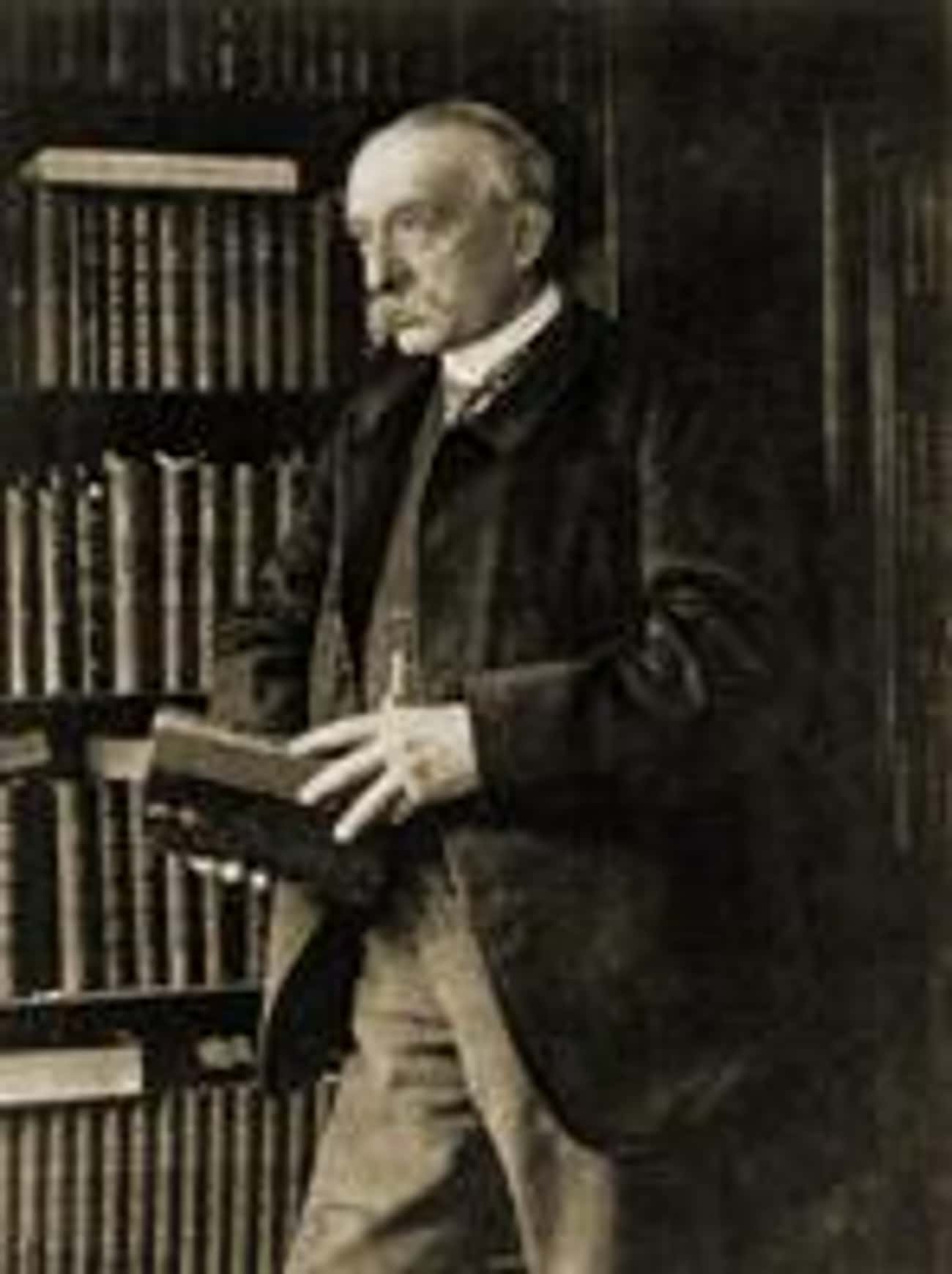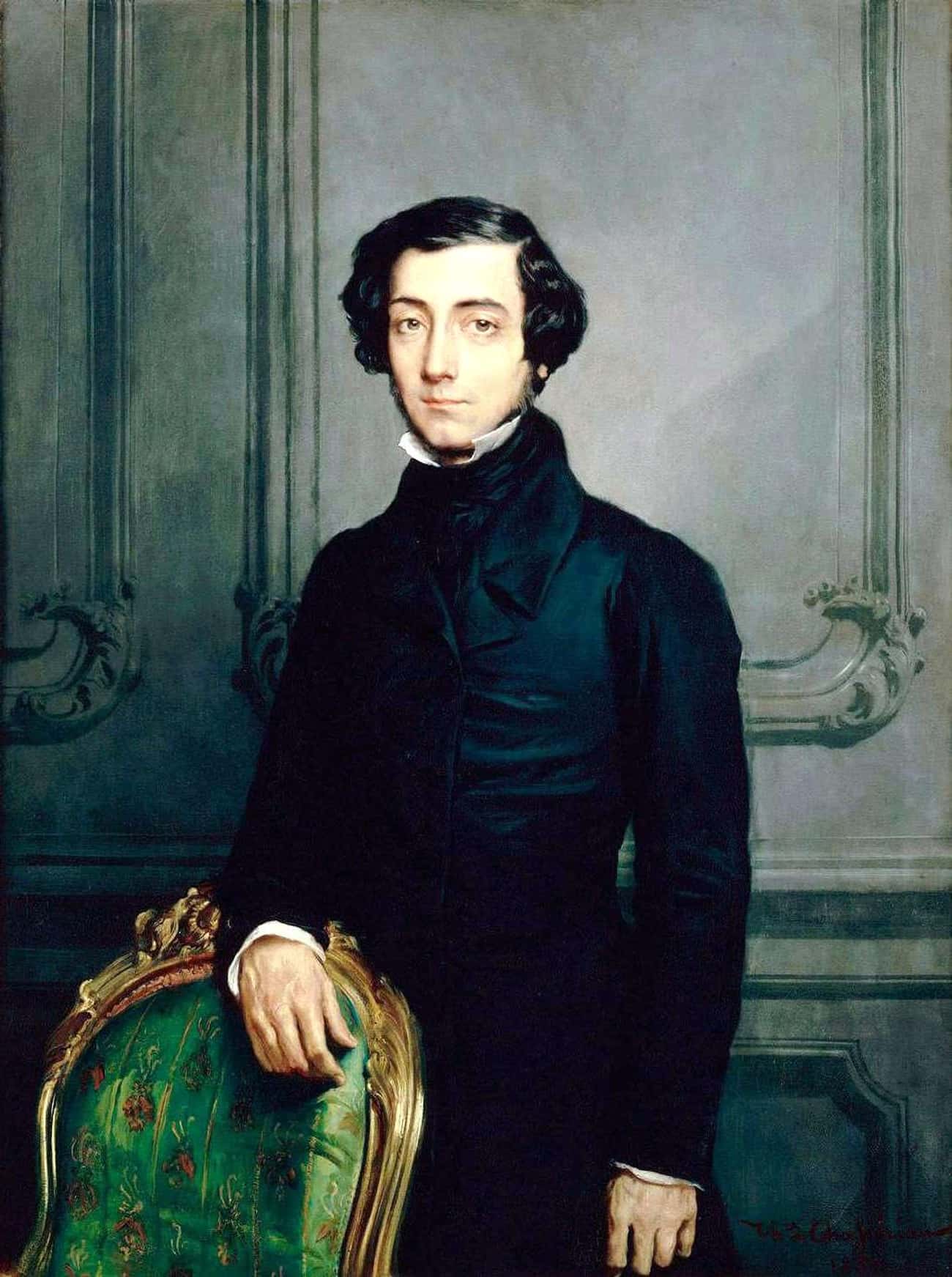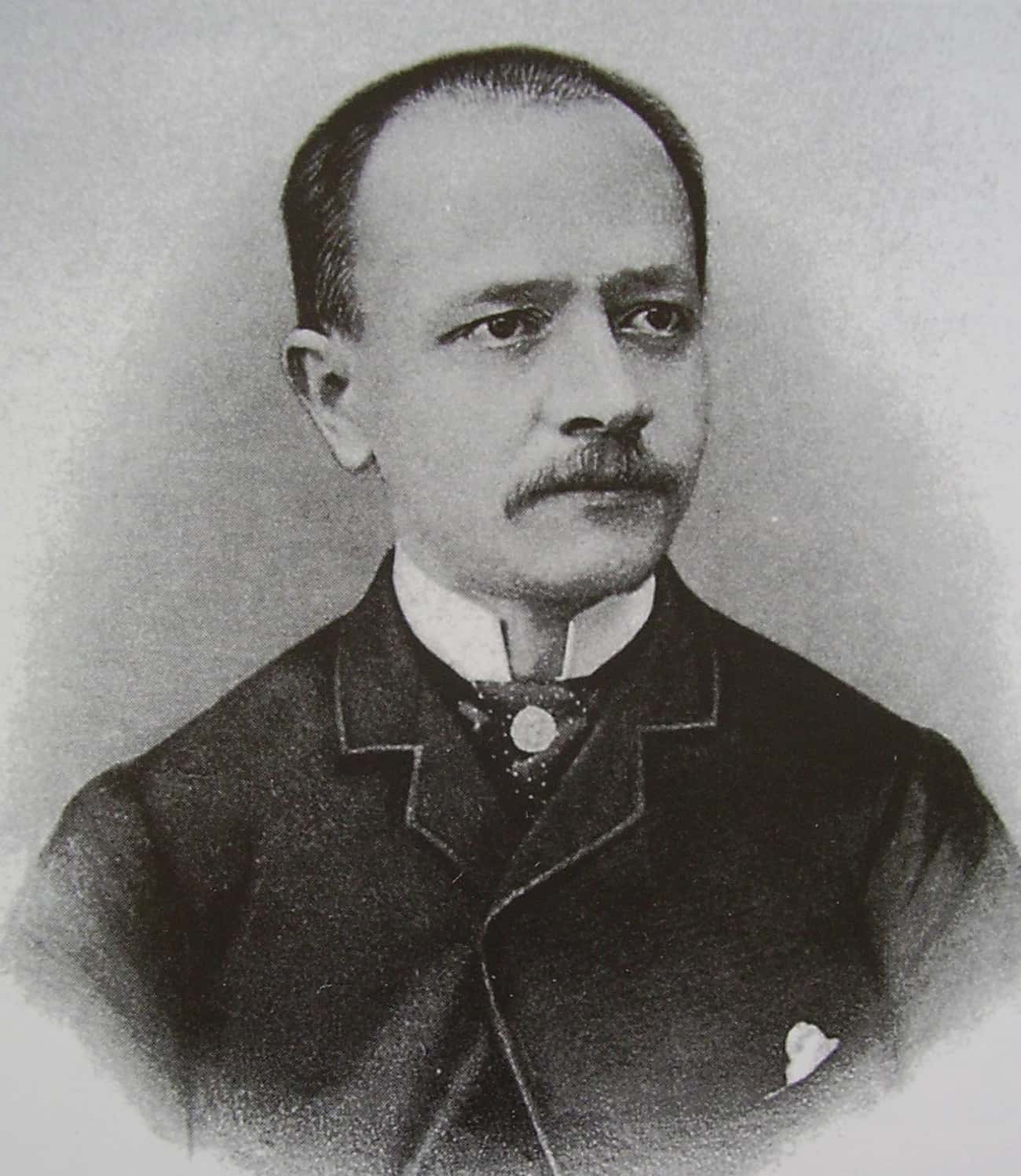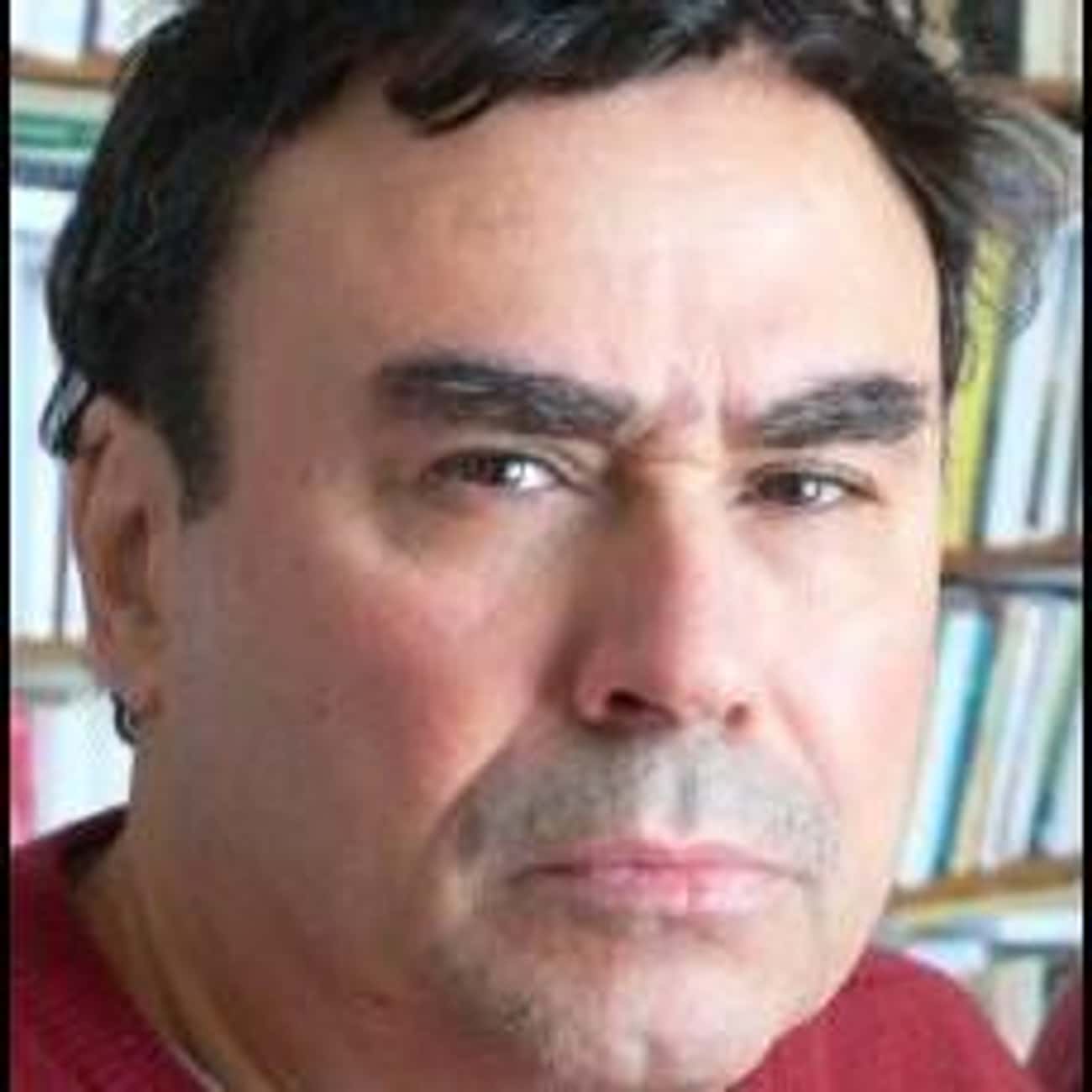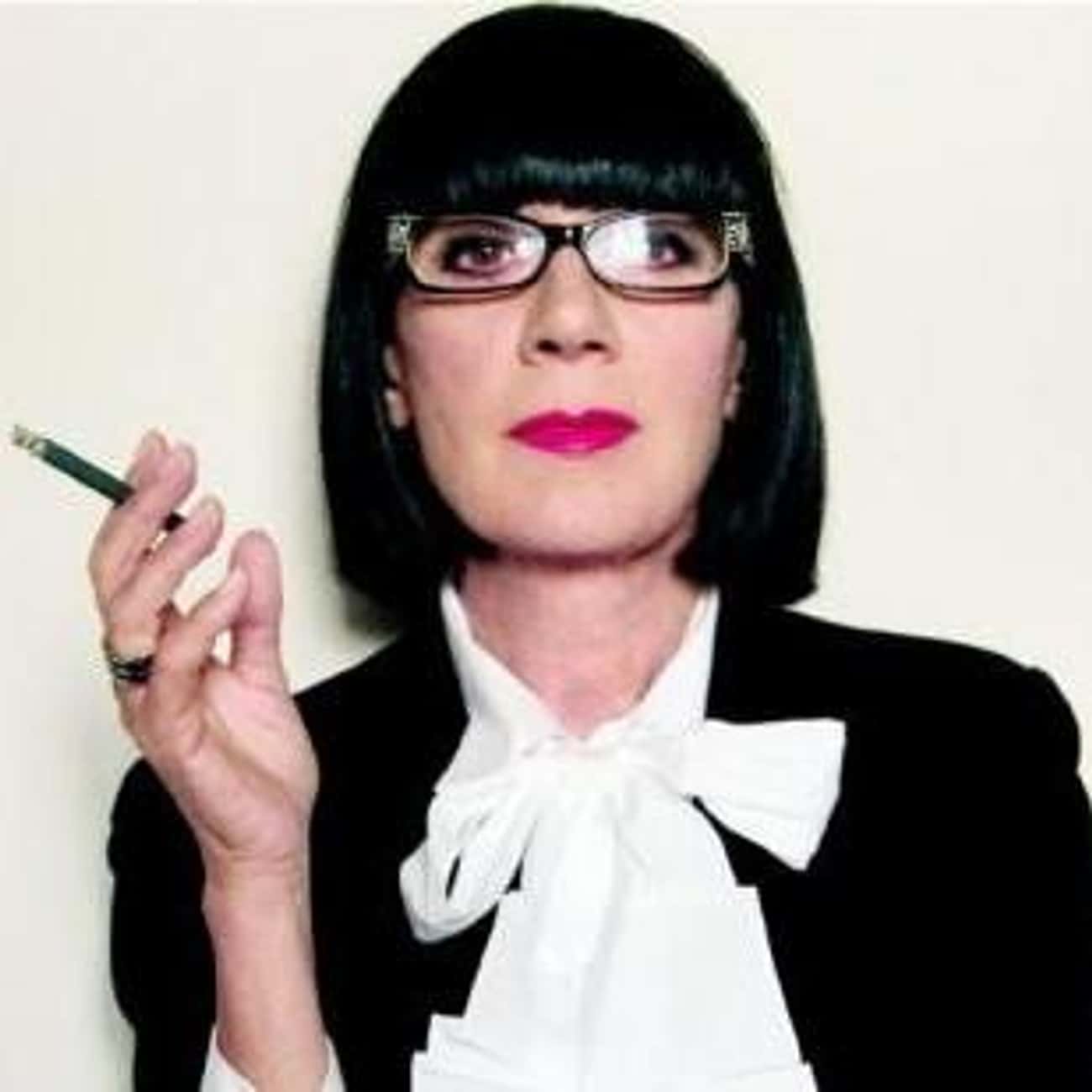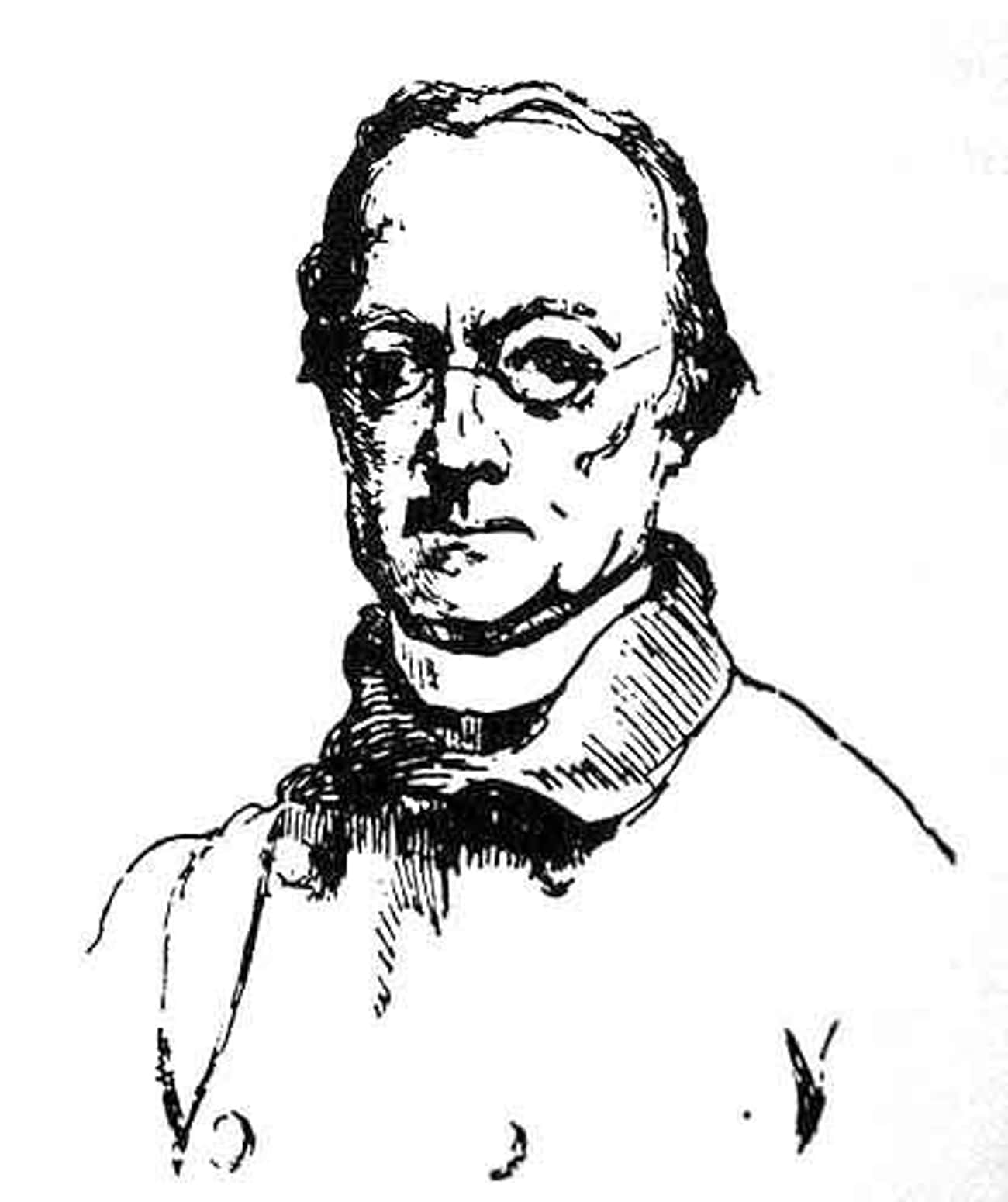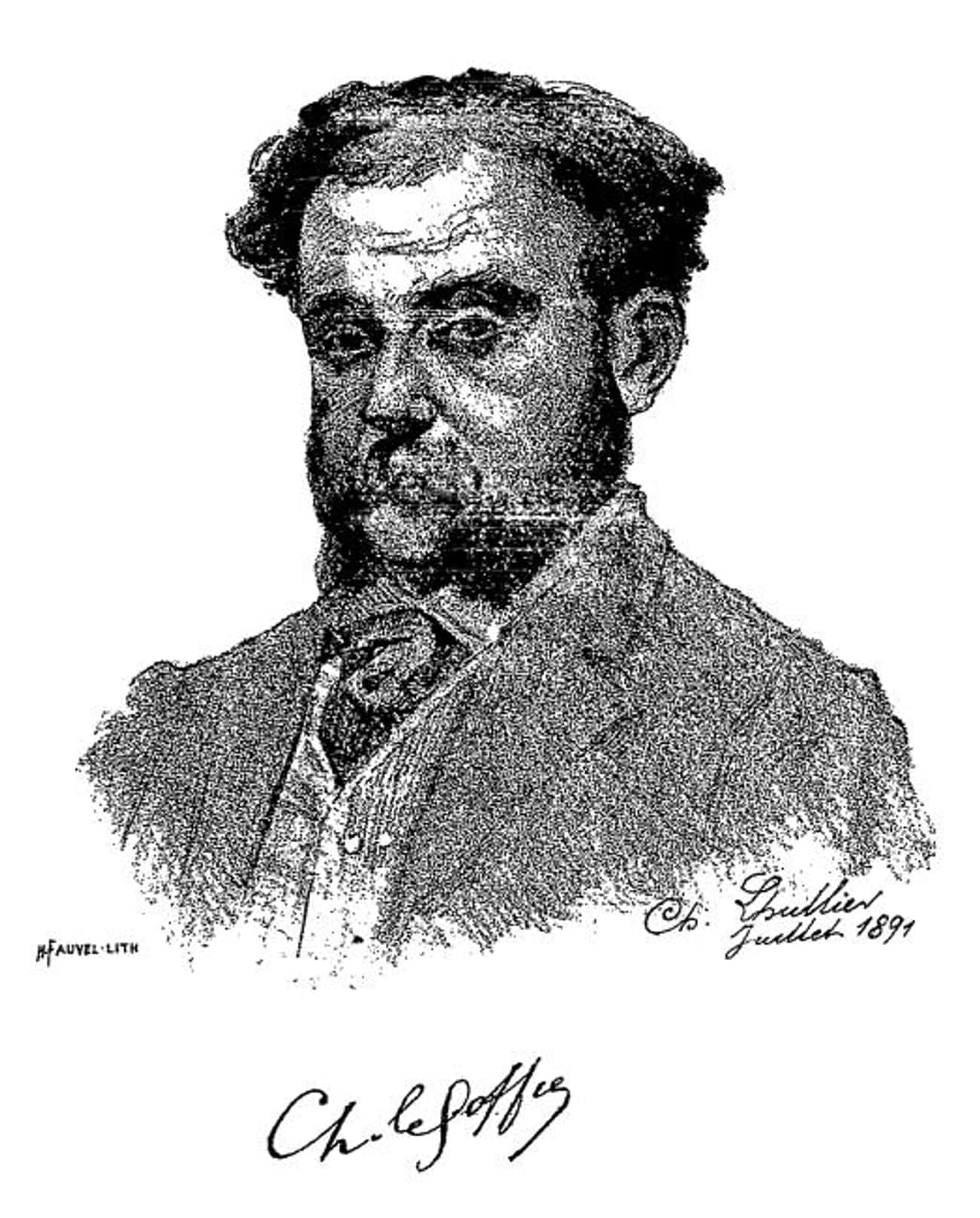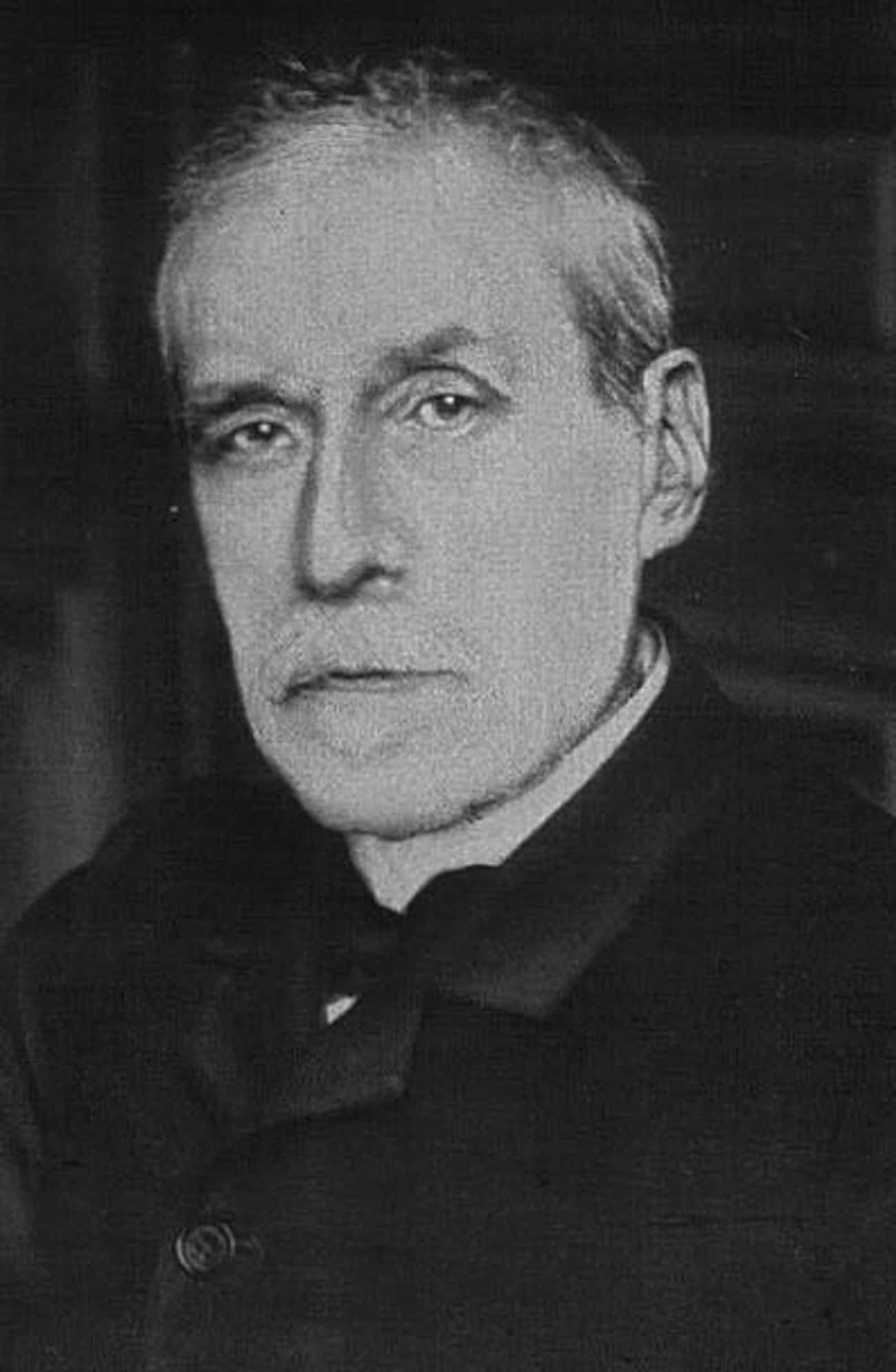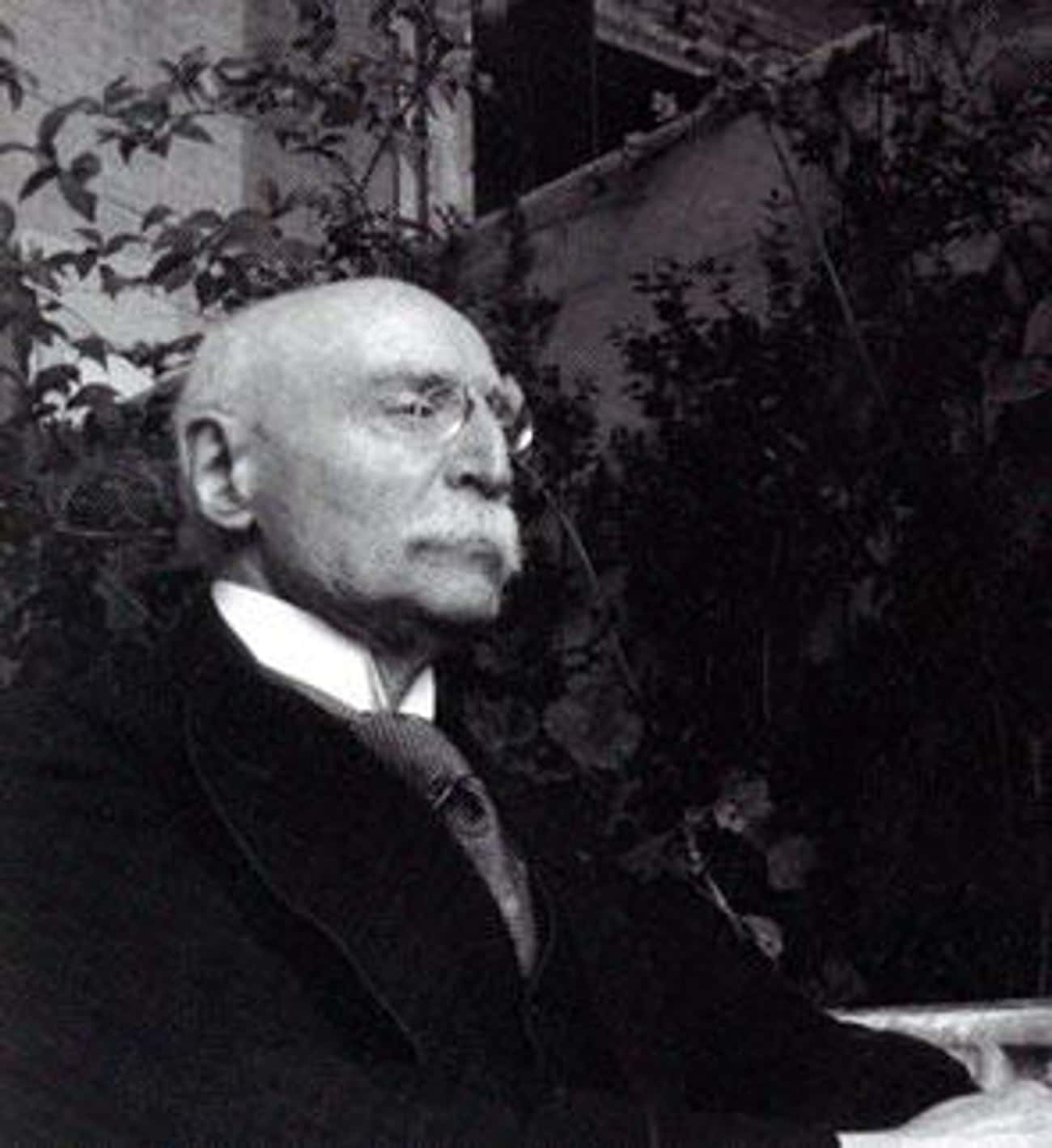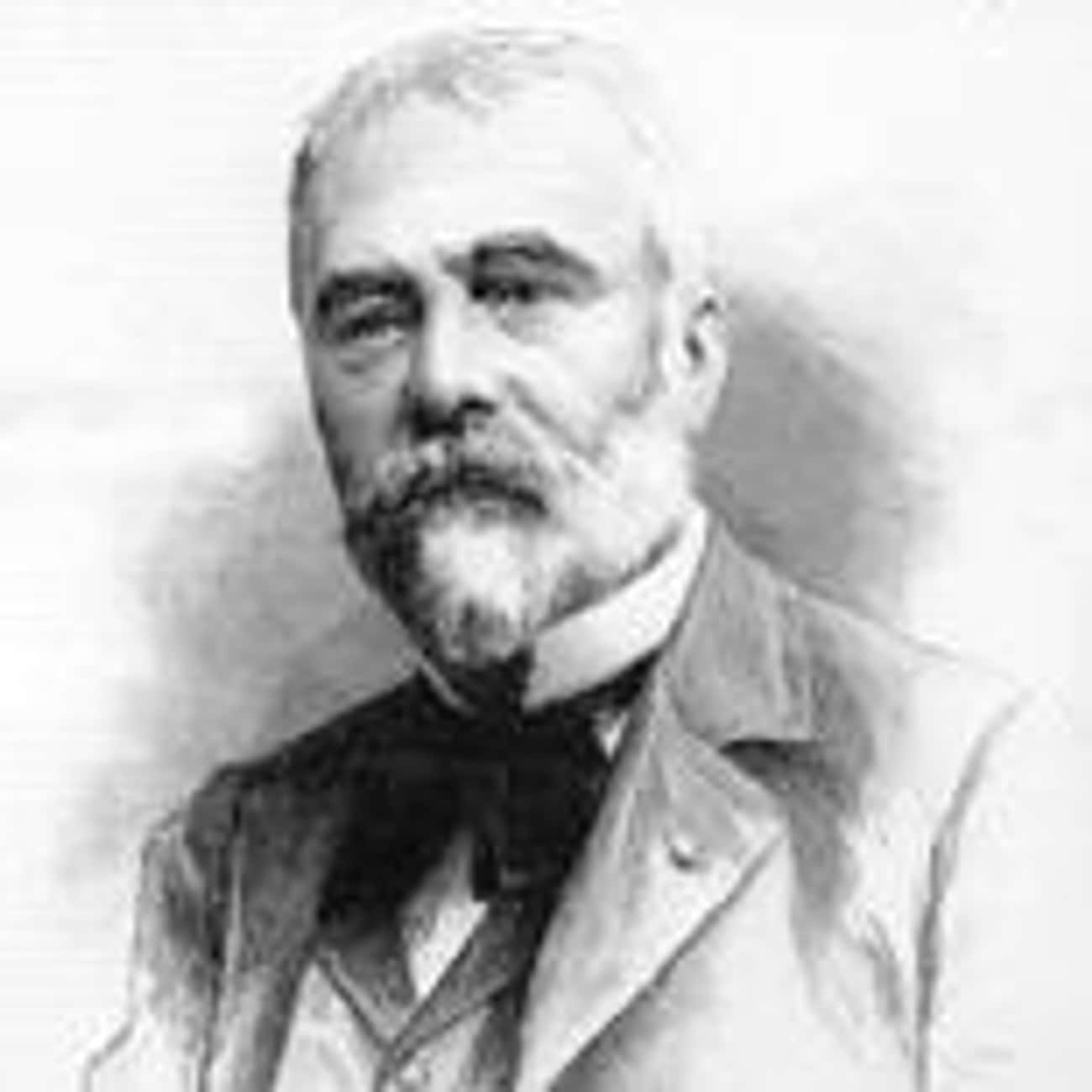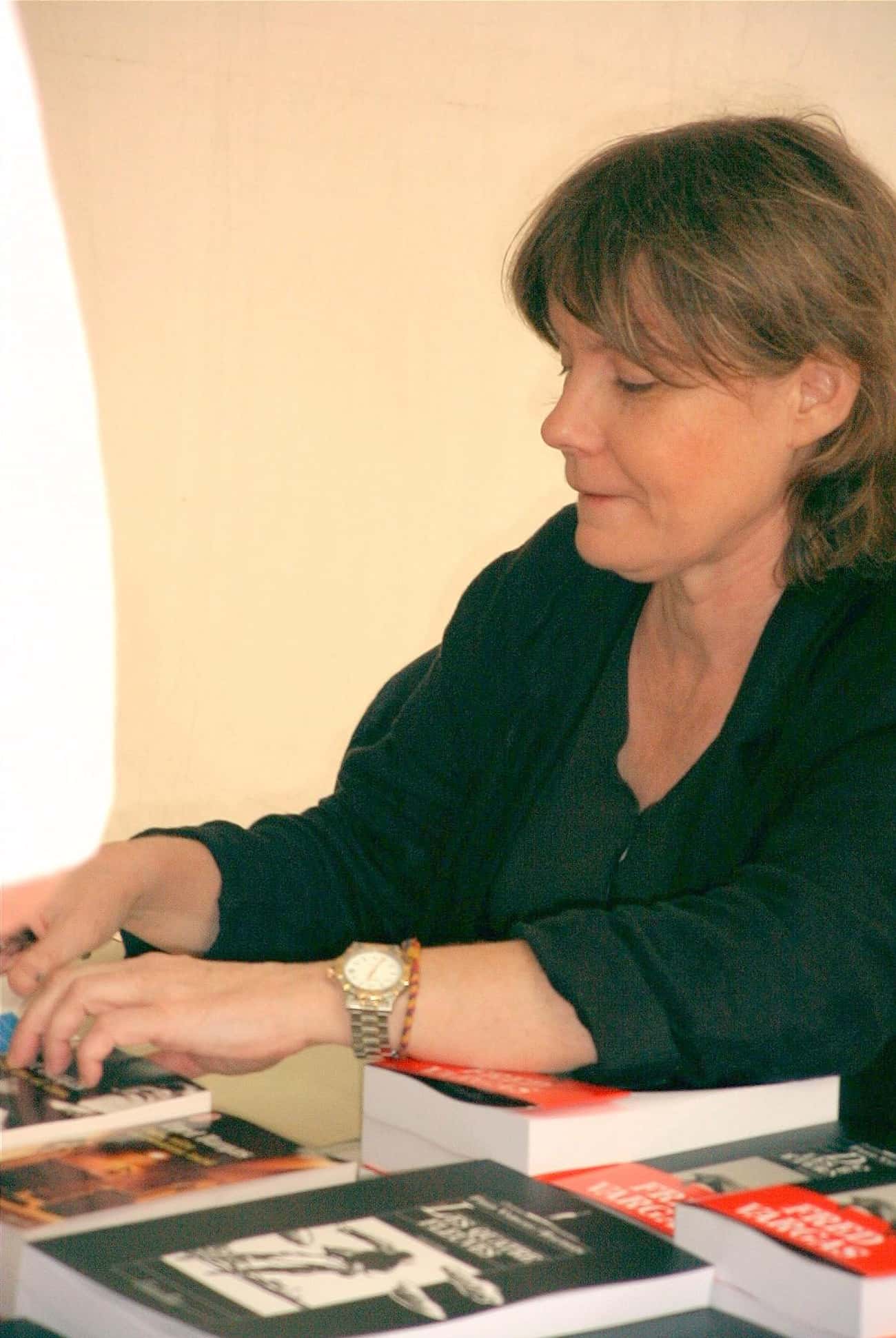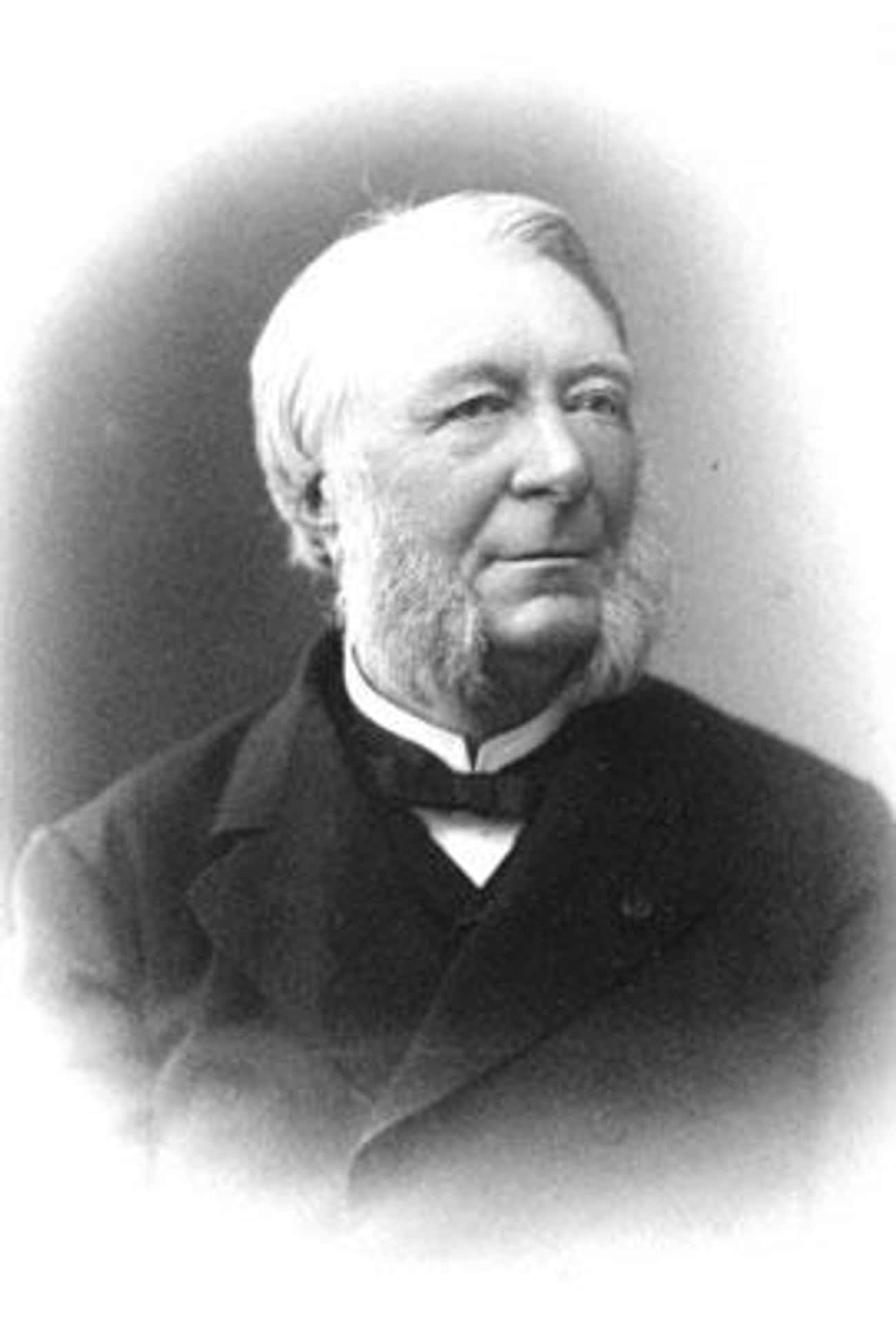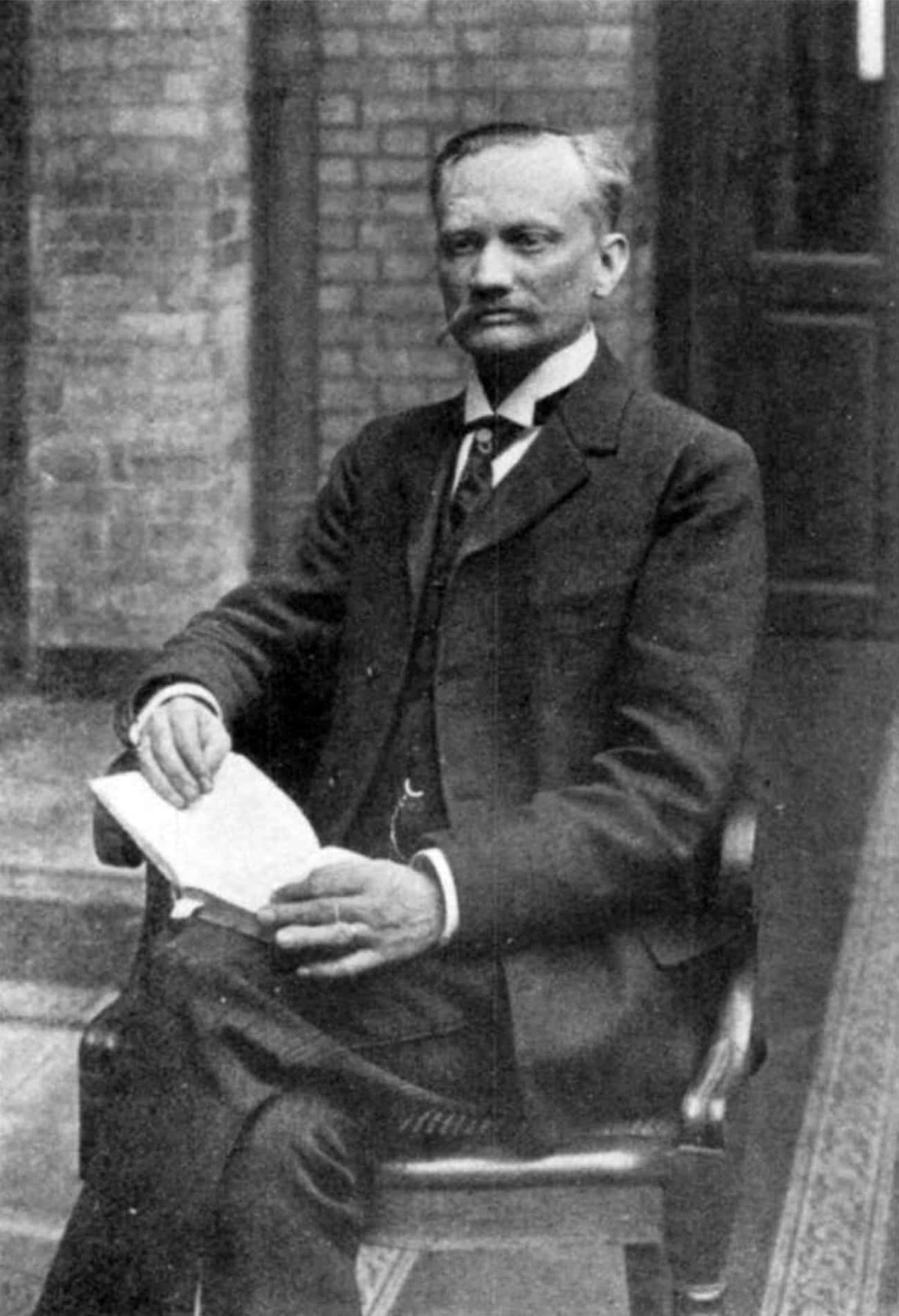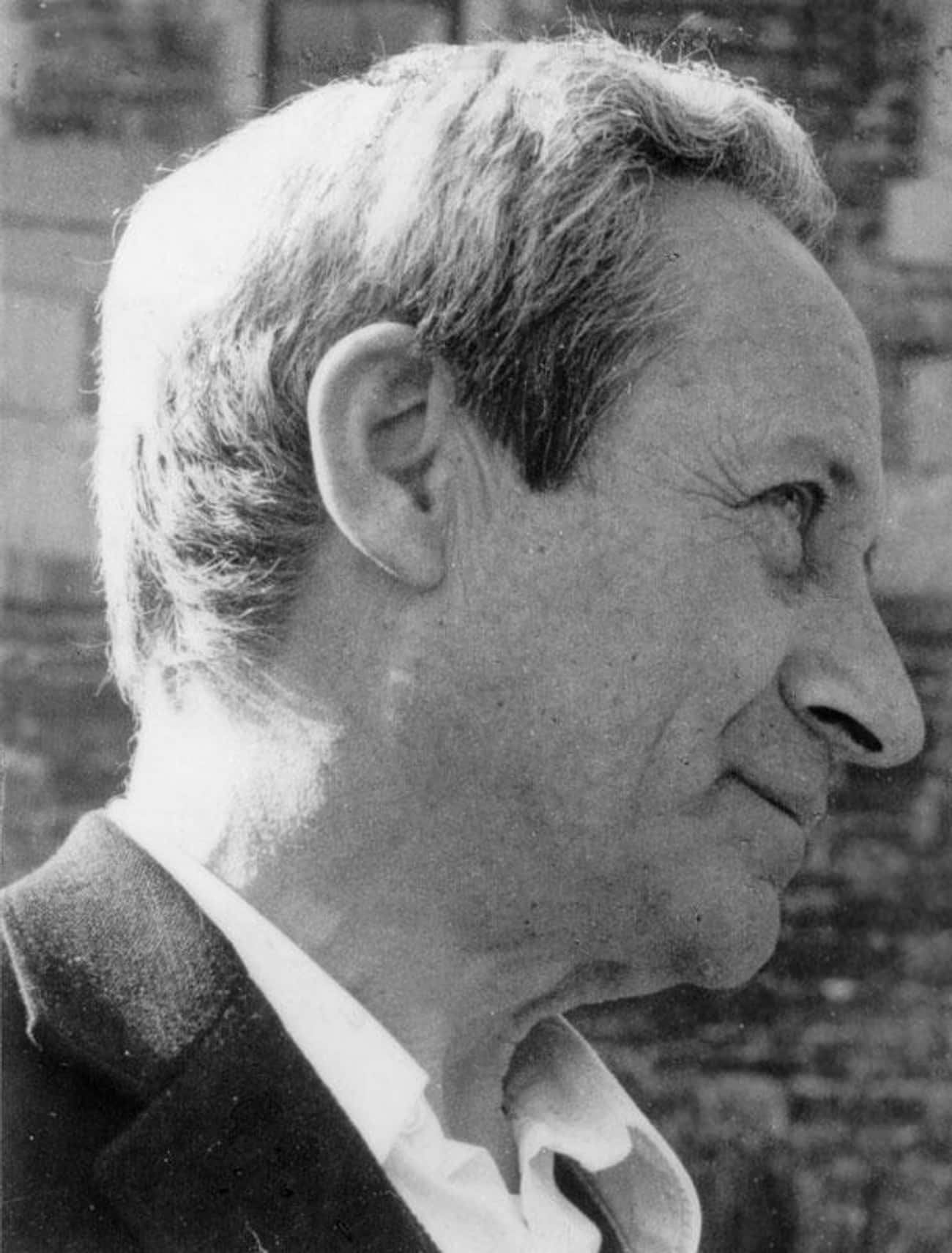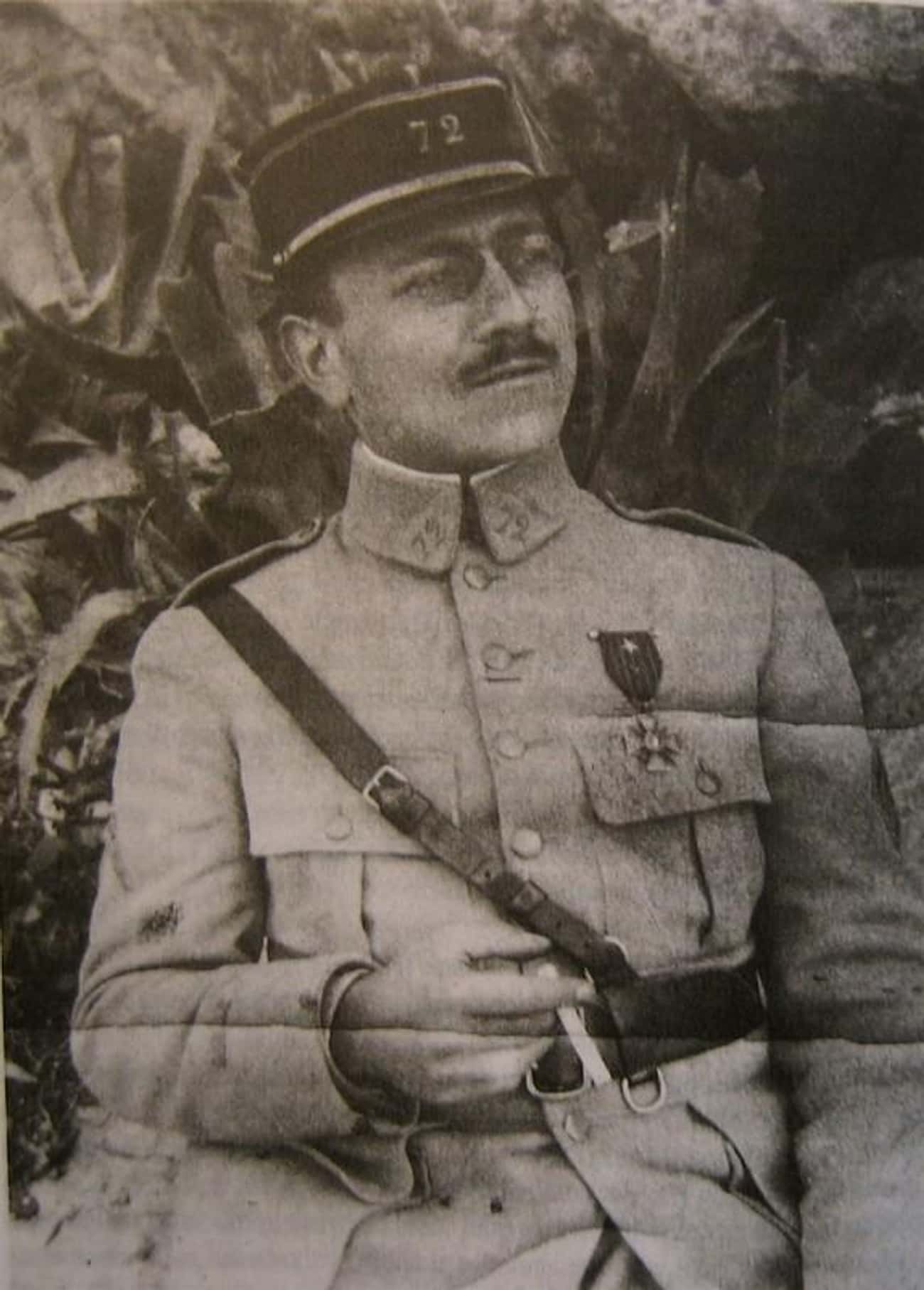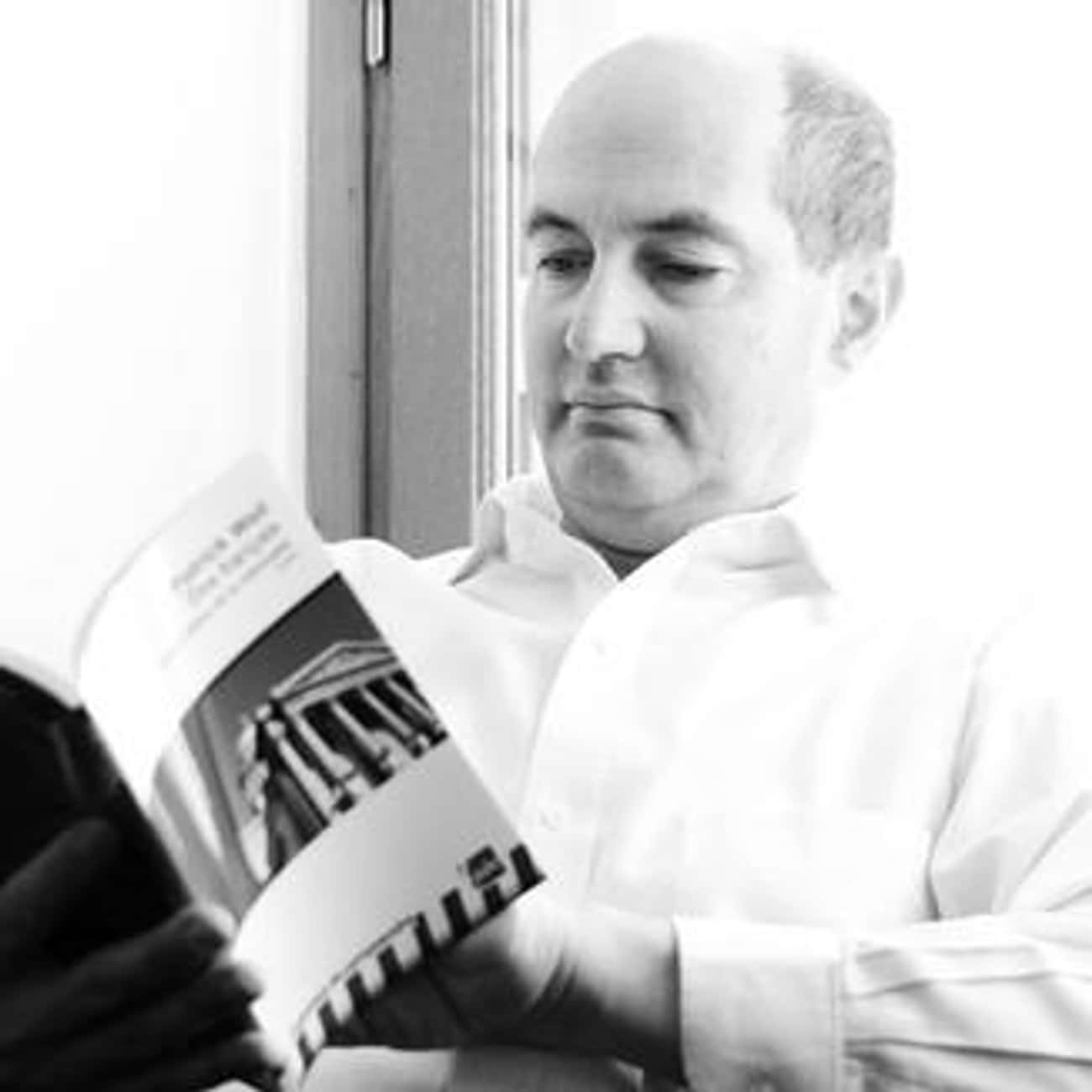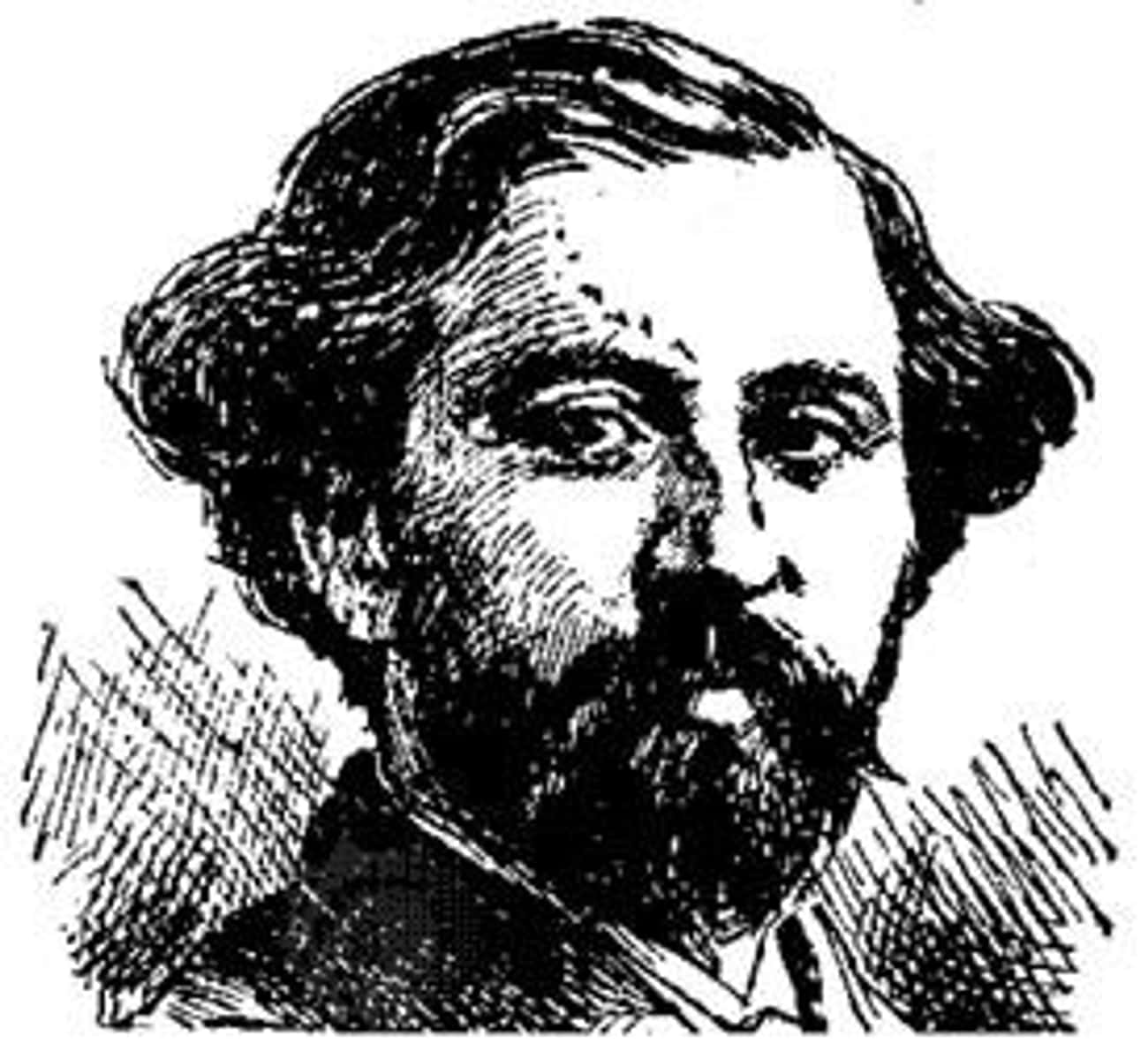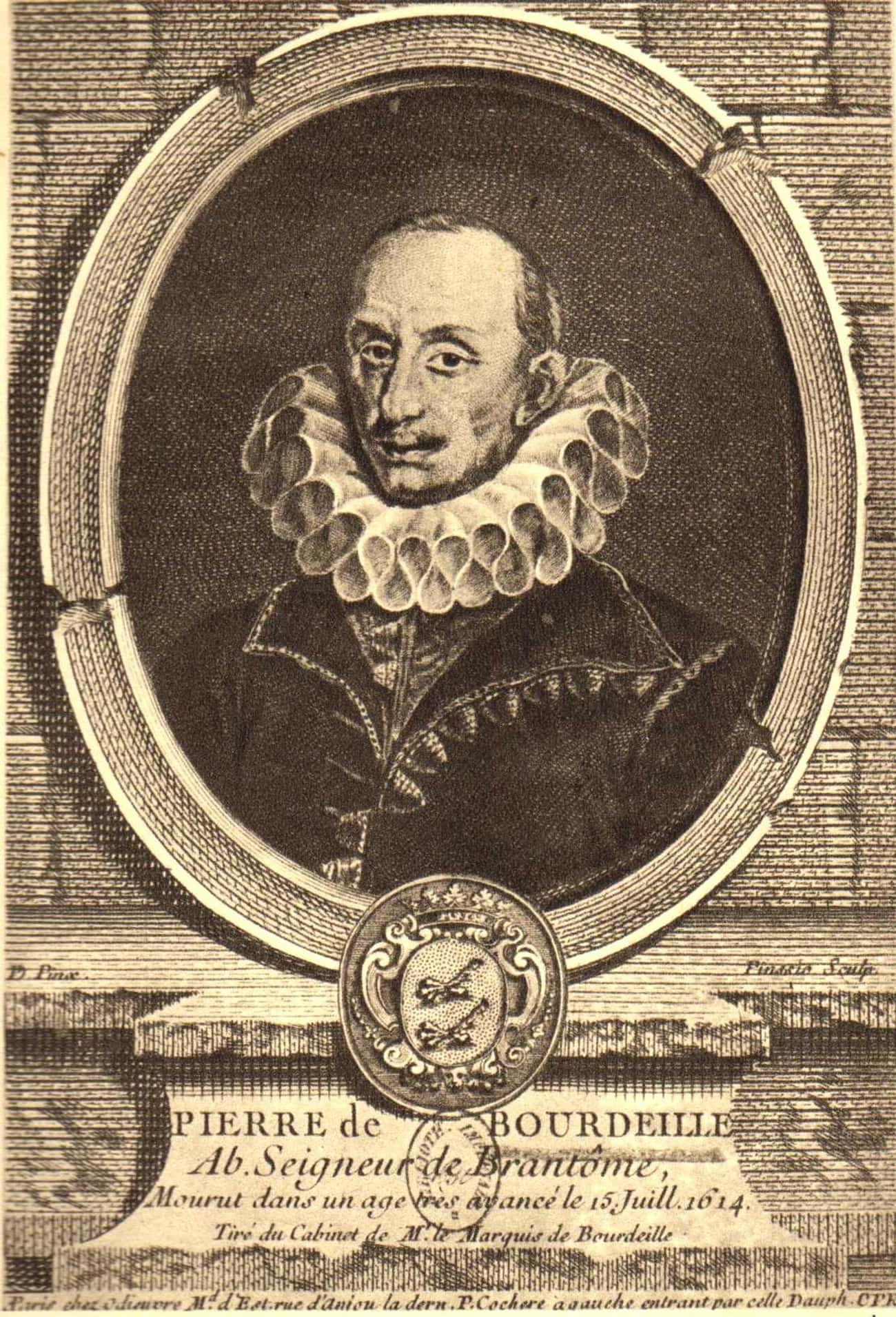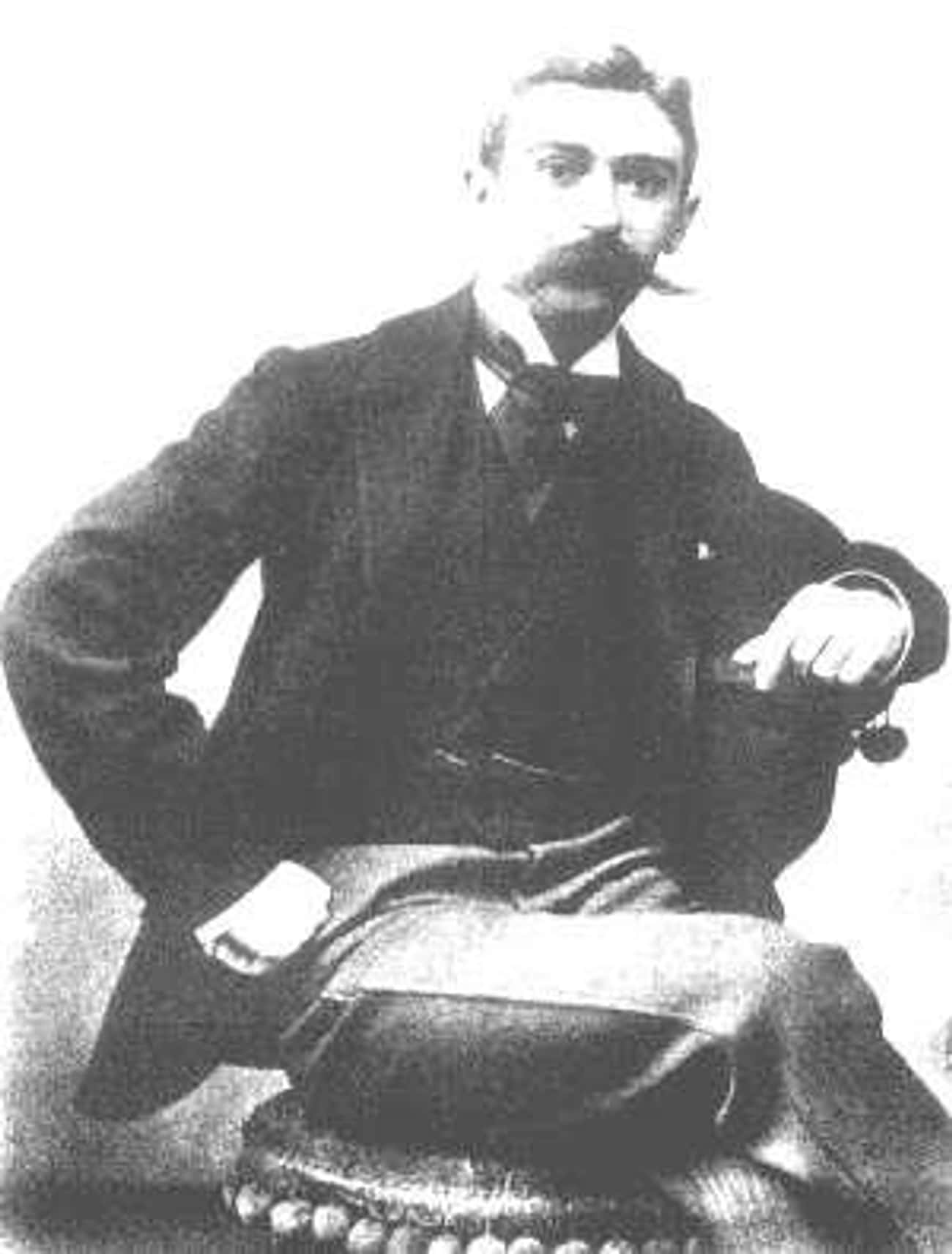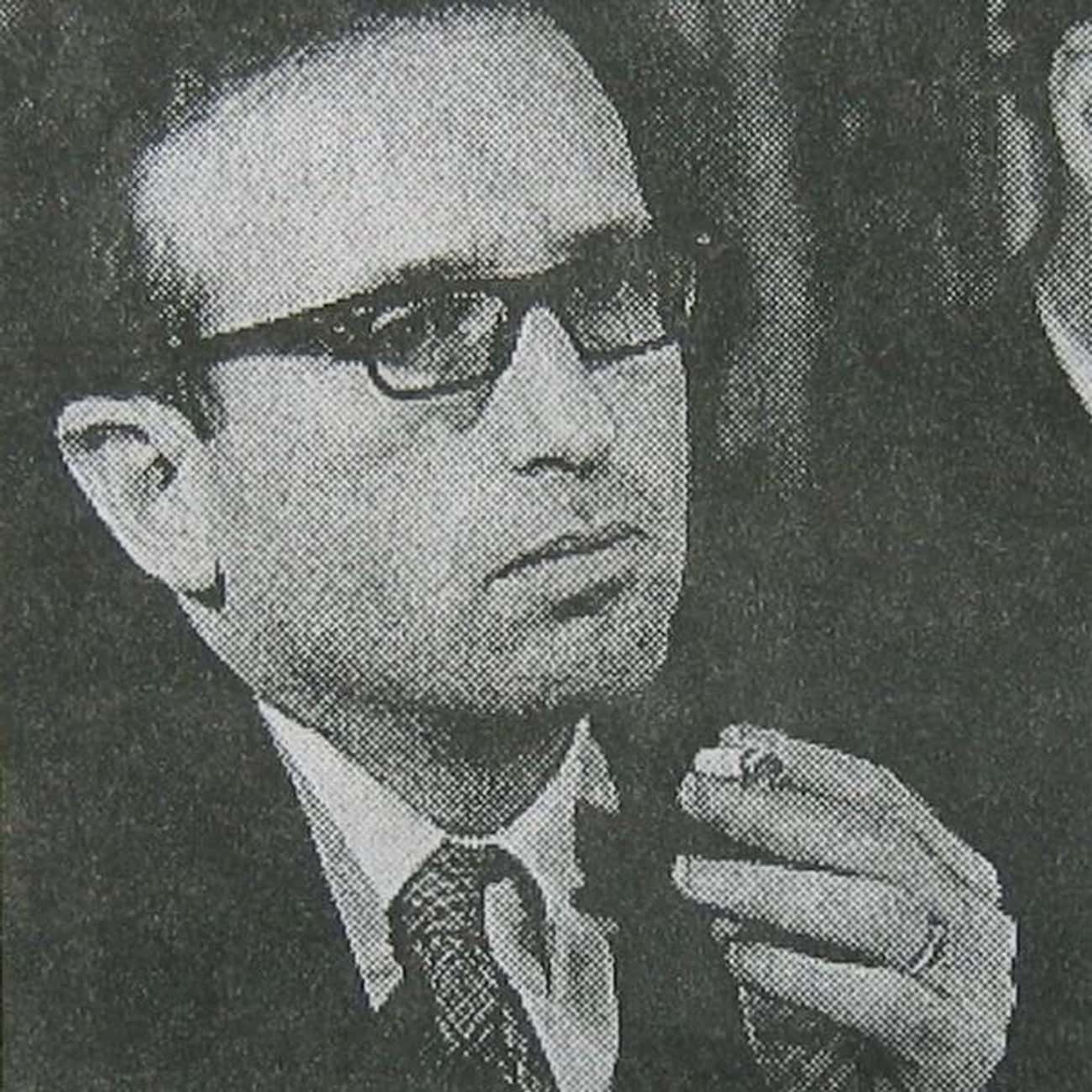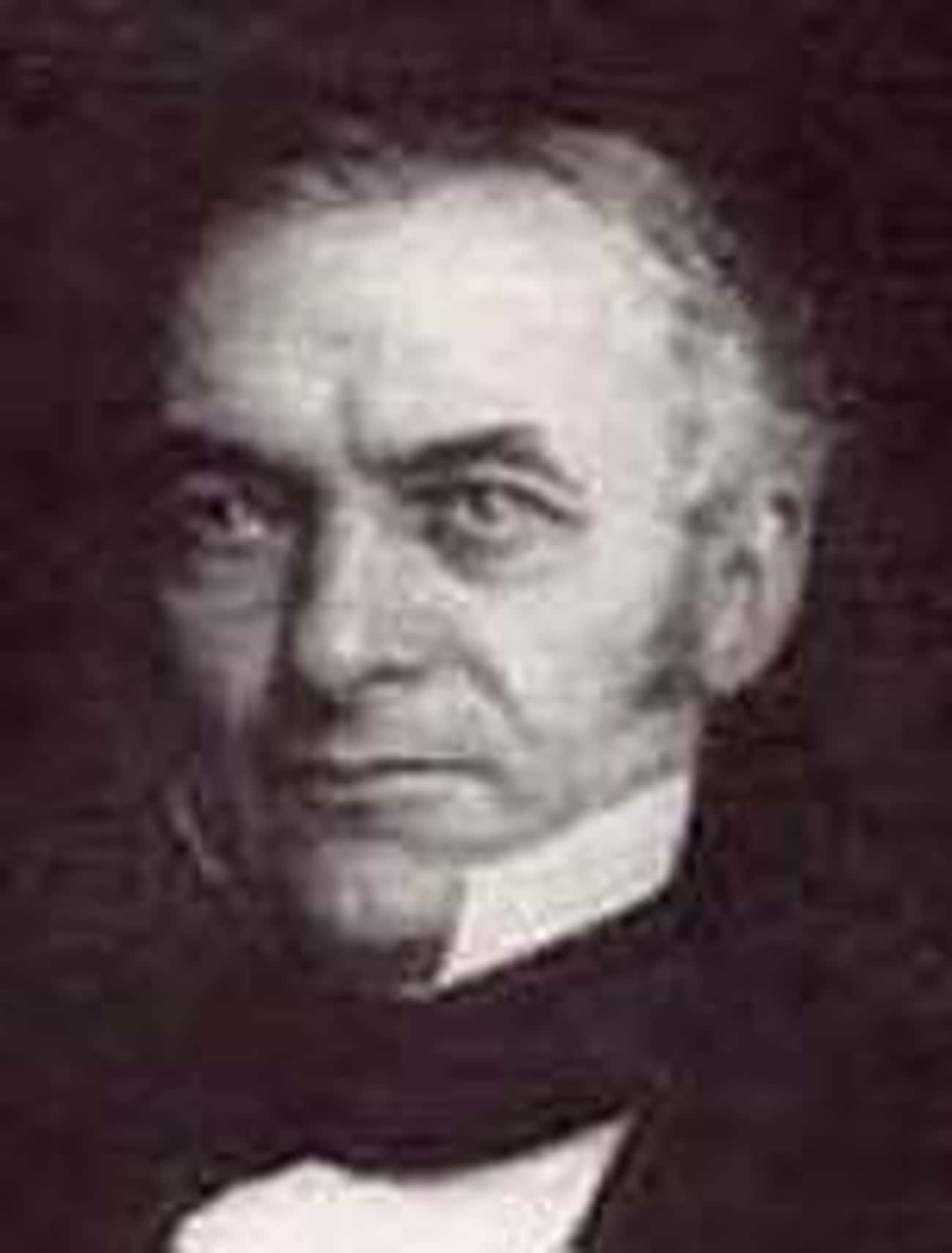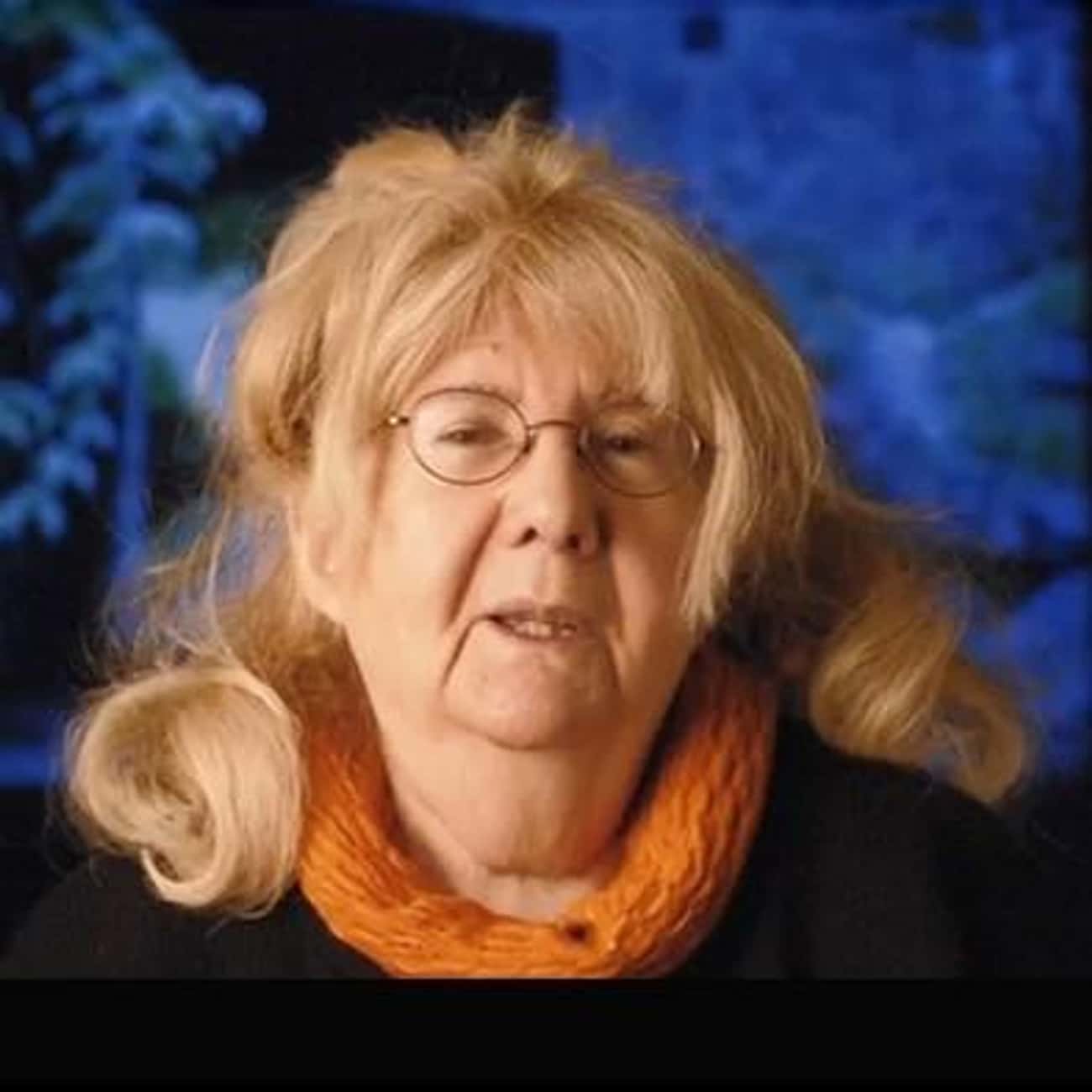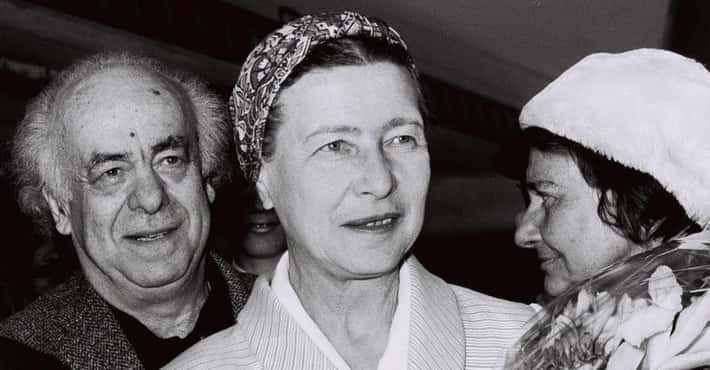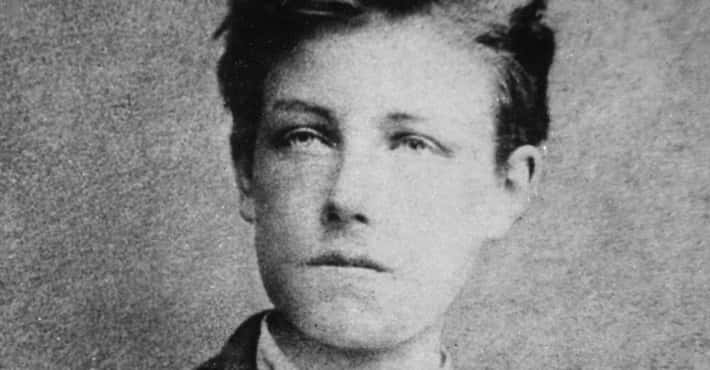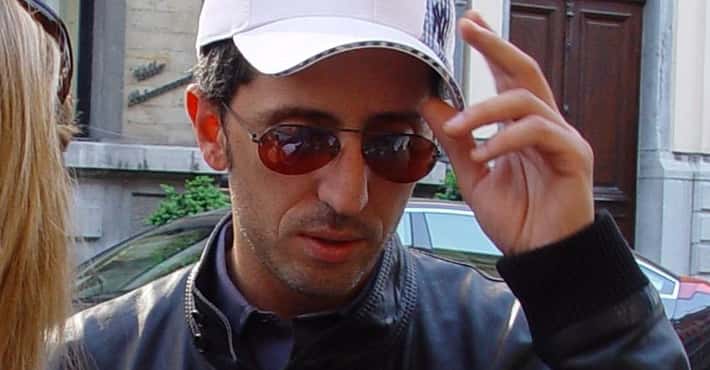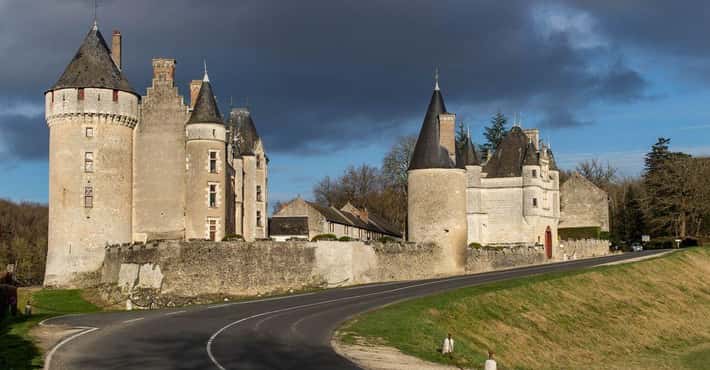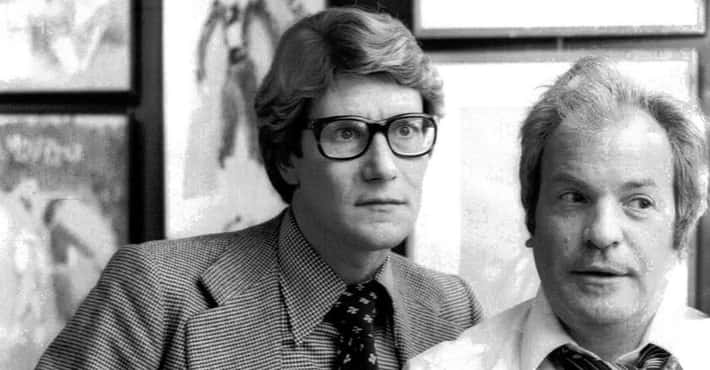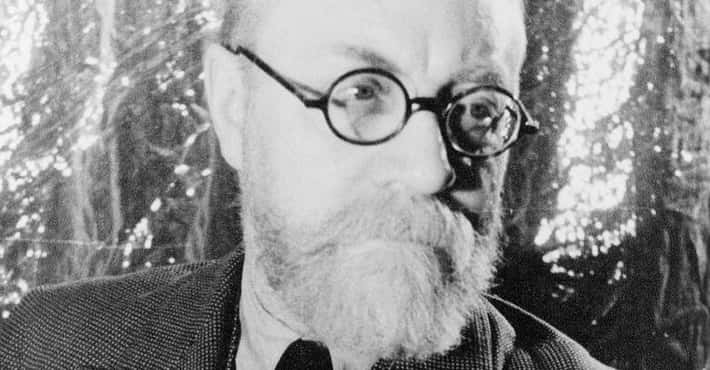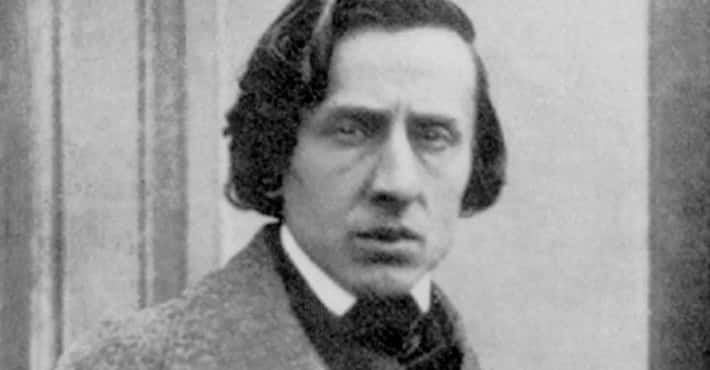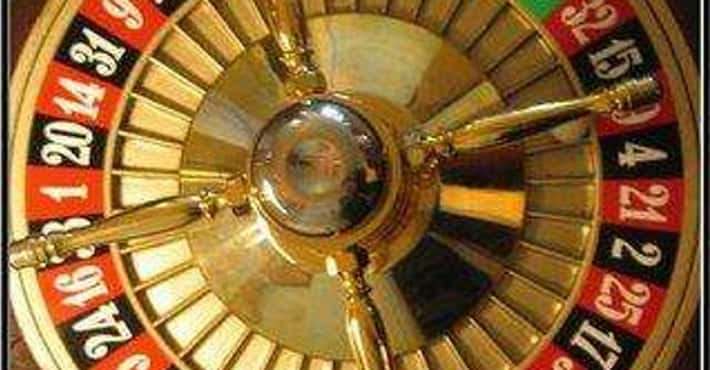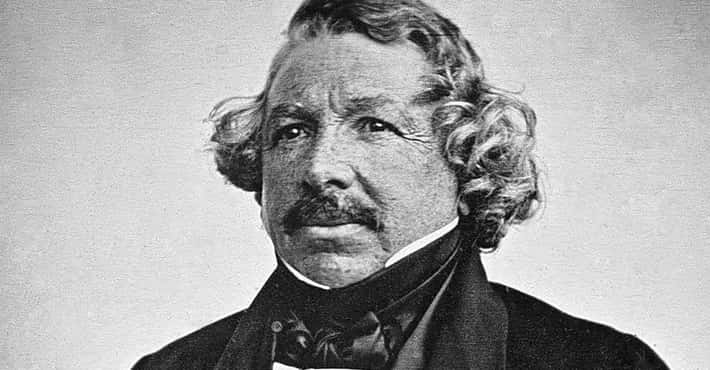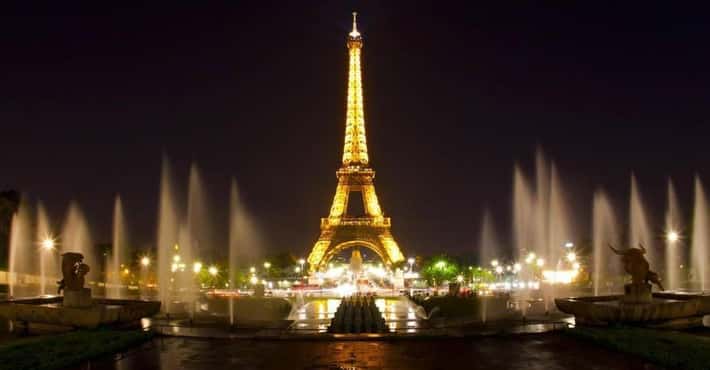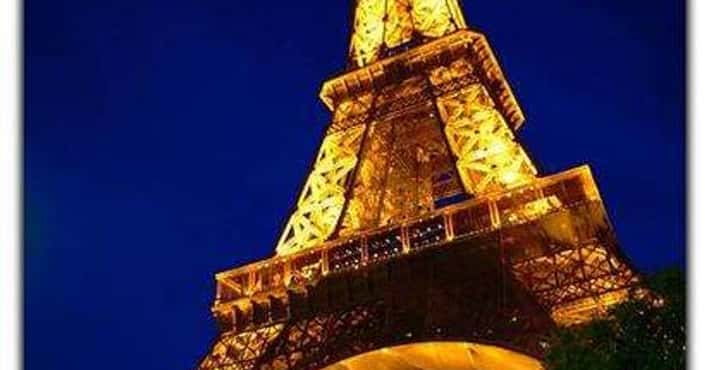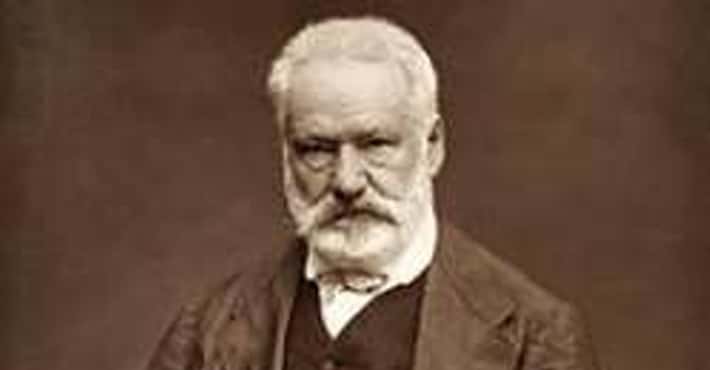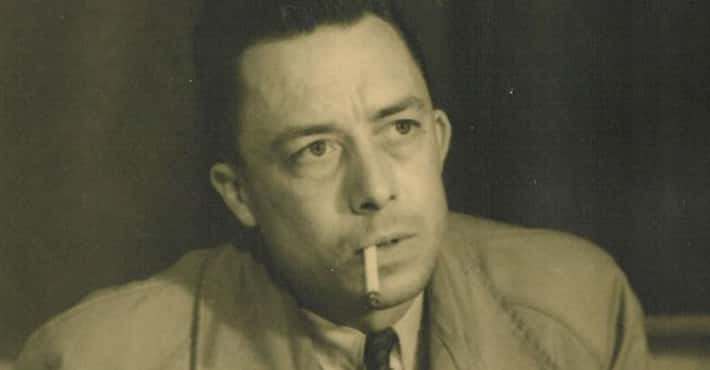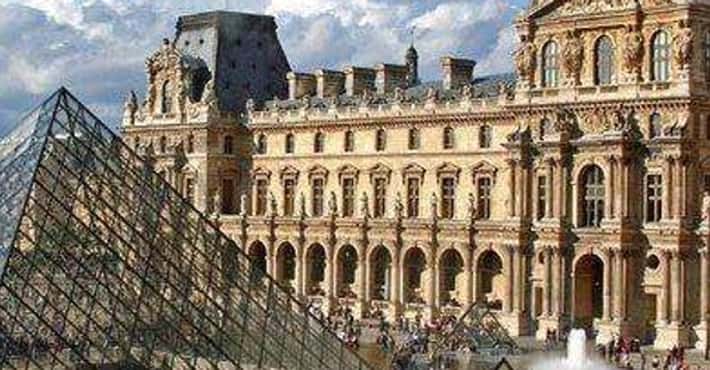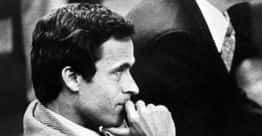Famous Historians from France
- Photo: Metaweb (FB) / Public domain
Albert Sorel
Albert Sorel (13 August 1842 – 29 June 1906) was a French historian. He was nominated for the Nobel Prize in Literature nine times. - Photo: Metaweb (FB) / Public domainAlexis Charles-Henri-Maurice Clérel, Viscount de Tocqueville (; French: [alɛgzi də tɔkvil]; 29 July 1805 – 16 April 1859) was a French diplomat, political scientist and historian. He was best known for his works Democracy in America (appearing in two volumes, 1835 and 1840) and The Old Regime and the Revolution (1856). In both, he analyzed the improved living standards and social conditions of individuals as well as their relationship to the market and state in Western societies. Democracy in America was published after Tocqueville's travels in the United States and is today considered an early work of sociology and political science. Tocqueville was active in French politics, first under the July Monarchy (1830–1848) and then during the Second Republic (1849–1851) which succeeded the February 1848 Revolution. He retired from political life after Louis Napoléon Bonaparte's 2 December 1851 coup and thereafter began work on The Old Regime and the Revolution. Tocqueville argued the importance of the French Revolution was to continue the process of modernizing and centralizing the French state which had begun under King Louis XIV. The failure of the Revolution came from the inexperience of the deputies who were too wedded to abstract Enlightenment ideals. Tocqueville was a classical liberal and liberal conservative who advocated parliamentary government, but he was skeptical of the extremes of democracy.
- Photo: Metaweb (FB) / Public domain
Auguste Molinier
Auguste Molinier (30 September 1851 – 19 May 1904) was a 19th-century French historian. Augustin Cabanès
Dr. Augustin Cabanès (30 April 1862 – 5 May 1928) was a French doctor, historian and author of numerous works of fiction and history. He was known for his books on historical medical mysteries. He studied medicine in Bordeaux and Paris, defending his doctorate in 1889 with a thesis involving Hydrastis canadensis. As a physician, he was associated with the Préfecture de la Seine. In 1894, he founded Chronique médicale, a popular journal dealing with unpublished articles on the health of literary and historical figures.- Photo: user uploaded image
Benjamin Stora
Benjamin Stora (born 2 December 1950 in Constantine, French Algeria) is a French historian, expert on North Africa, who is widely considered one of the world's leading authorities on Algerian history. He was born in a Jewish family which left the country following its War of Independence in 1962. Stora holds two PhDs (1974 and 1984) and a Doctorate of the State (1991). His books and articles have been translated into several languages, including English, Arabic, Spanish, German, Russian and Vietnamese. - Photo: user uploaded image
Chantal Thomas
Chantal Thomas is a writer. - Photo: Metaweb (FB) / Public domain
Charles Étienne Brasseur de Bourbourg
Abbé Charles-Étienne Brasseur de Bourbourg (8 September 1814 – 8 January 1874) was a noted French writer, ethnographer, historian and archaeologist. He became a specialist in Mesoamerican studies, travelling extensively in the region. His writings, publications, and recovery of historical documents contributed much to knowledge of the region's languages, writing, history and culture, particularly those of the Maya and Aztec civilizations. However, his speculations concerning relationships between the ancient Maya and the lost continent of Atlantis inspired Ignatius L. Donnelly and encouraged the pseudo-science of Mayanism. - Photo: Metaweb (FB) / Public domainCharles Le Goffic (14 July 1863 – 12 February 1932) was a Breton poet, novelist and historian whose influence was especially strong in his native Brittany. He was a member of the Académie française.
- Photo: Metaweb (FB) / Public domainÉtienne Émile Marie Boutroux (French: [butʁu]; July 28, 1845 – November 22, 1921) was an eminent 19th century French philosopher of science and religion, and an historian of philosophy. He was a firm opponent of materialism in science. He was a spiritual philosopher who defended the idea that religion and science are compatible at a time when the power of science was rising inexorably. His work is overshadowed in the English-speaking world by that of the more celebrated Henri Bergson. He was elected membership of the Academy of Moral and Political Sciences in 1898 and in 1912 to the Académie française.
- Photo: Metaweb (FB) / Fair use
Émile Mâle
Émile Mâle (French: [emil mɑl]; 2 June 1862 – 6 October 1954) was a French art historian, one of the first to study medieval, mostly sacral French art and the influence of Eastern European iconography thereon. He was a member of the Académie française, and a director of the Académie de France à Rome. - Photo: Metaweb (FB) / Public domain
Ernest Lavisse
Ernest Lavisse (French: [lavis]; 17 December 1842 – 18 August 1922) was a French historian. He was nominated for the Nobel Prize in Literature five times. - Photo: Metaweb (FB) / CC-BY-SA-2.5
Evi Gkotzaridis
Evi Gkotzaridis is a European historian whose work focuses on 20th century Irish and Greek history. Her critically acclaimed book Trials of Irish History gave the first detailed analysis of the revisionist debate in Ireland. She has also authored a book called A Pacifist's Life and Death, the first historical biography detailing the life, time and achievements of Grigorios Lambrakis. Lambrakis was an athletic champion, doctor, politician and Greece’s most committed defender of democracy and peace. He was mortally struck on the head with a club by Right-wing 'parastate' individuals, shortly after he had delivered the keynote speech at an anti-war meeting in Salonica, on 22 May 1963. Fernand Braudel
Fernand Braudel (French: [bʁodɛl]; 24 August 1902 – 27 November 1985) was a French historian and a leader of the Annales School. His scholarship focused on three main projects: The Mediterranean (1923–49, then 1949–66), Civilization and Capitalism (1955–79), and the unfinished Identity of France (1970–85). His reputation stems in part from his writings, but even more from his success in making the Annales School the most important engine of historical research in France and much of the world after 1950. As the dominant leader of the Annales School of historiography in the 1950s and 1960s, he exerted enormous influence on historical writing in France and other countries. He was a student of Henri Hauser (1866-1946). Braudel has been considered one of the greatest of the modern historians who have emphasized the role of large-scale socioeconomic factors in the making and writing of history. He can also be considered as one of the precursors of world-systems theory.- Fred Vargas is the pseudonym of Frédérique Audoin-Rouzeau (born 7 June 1957 in Paris), a French historian, archaeologist and novelist. As a historian and archeologist, she is known for her work on the Black Death. Her crime fiction policiers (police procedurals) have won three International Dagger Awards from the Crime Writers Association, for three successive novels: in 2006, 2008 and 2009. She is the first author to achieve such an honour. In each case, her translator into English was Siân Reynolds, who was also recognized by the international award.
- Photo: Metaweb (FB) / Fair useMarie-Louis-Antoine-Gaston Boissier, French classical scholar, and secretary of the Académie française, was born at Nîmes. The Roman monuments of his native town very early attracted Gaston Boissier to the study of ancient history. He made epigraphy his particular theme, and at the age of twenty-three became a professor of rhetoric at Angoulême, where he lived and worked for ten years without further ambition. A travelling inspector of the university, however, happened to hear him lecture, and Boissier was called to Paris to be professor at the Lycée Charlemagne. He began his literary career by a thesis on the poet Attius and a study on the life and work of Marcus Terentius Varro. In 1861 he was made professor of Latin oratory at the Collège de France, and he became an active contributor to the Revue des deux mondes. In 1865 he published Cicéron et ses amis, which has enjoyed a success such as rarely falls to the lot of a work of erudition. In studying the manners of ancient Rome, Boissier had learned to re-create its society and to reproduce its characteristics with exquisite vivacity.
Henry Laurens
Henry Laurens (born 1954) is a French historian and author of several histories and studies about the Arab-Muslim world. He is Professor and Chair of History of the Contemporary Arab World at the Collège de France, Paris. Laurens specializes in several related areas of research: European-Ottoman contacts in the 19th century, Franco-Arab relations, Middle-Eastern politics, European thought in the 18th and 19th centuries, and the history of modern Palestine. He has written a four-volume work about the latter, covering the period from 1799 to 1982. He also teaches this subject at the Collège de France.Since 1999, Laurens has served on the Administrative Council of the French Institute of Oriental Archeology in Cairo. In 2004, he became a member of the High Council of the Institute of the Arab World (IMA) in Paris. He is also on the editorial board of the journal Maghreb-Machrek.- Photo: Metaweb (FB) / Public domain
Joseph Bédier
Joseph Bédier (28 January 1864 – 29 August 1938) was a French writer and scholar and historian of medieval France. - Photo: Metaweb (FB) / Public domain
Leon Poliakov
Léon Poliakov (Russian: Лев Поляков; 25 November 1910, Saint Petersburg – 8 December 1997, Orsay) was a French historian who wrote extensively on the Holocaust and antisemitism and wrote "The Aryan Myth". Born into a Russian Jewish family, Poliakov lived in Italy and Germany until he settled in France. He cofounded the Center of Contemporary Jewish Documentation, established to collate documentation on the persecution of Jews during World War II. He also assisted Edgar Faure at the Nuremberg Trial. Poliakov went on to serve as director of research at the National Centre for Scientific Research (Centre national de la recherche scientifique) from 1954 to 1971.According to historian Jos Sanchez, Poliakov was the first scholar to assess the disposition of Pope Pius XII critically on various issues connected to the Holocaust. In November 1950, Poliakov wrote "The Vatican and the 'Jewish Question' - The Record of the Hitler Period-And After" in the influential Jewish journal Commentary. The article was the first to consider the attitude of the papacy during World War II and the Holocaust, but it was not until 1963, when German playwright Rolf Hochhuth published his play Der Stellvertreter, that discussion of Poliakov's initial investigations in this area took on worldwide significance. Although little noted at the time, Poliakov's 1951 Breviaire de la haine ("Harvest of Hate") was the first major work on the genocide, predating Raul Hilberg's Destruction of the European Jews by a decade. It received some good reviews in opposition to the prevailing opinion in studies at the time that a major genocide of six million Jews was logistically impossible and so could not have happened. Poliakov said in his Memoires that he refrained from even using the word genocide, which was considered unfit for publication in 1951 when his groundbreaking work was first published. - Louis Ducros is a writer.
Lucien Febvre
Lucien Paul Victor Febvre (French: [lysiɛ̃ pol viktɔʁ fɛvʁ]; 22 July 1878 – 11 September 1956) was a French historian best known for the role he played in establishing the Annales School of history. He was the initial editor of the Encyclopédie française together with Anatole de Monzie.- Photo: Metaweb (FB) / Public domain
Marc Bloch
Marc Léopold Benjamin Bloch (; French: [maʁk blɔk]; 6 July 1886 – 16 June 1944) was a French historian. A founding member of the Annales School of French social history, he specialised in medieval history and published widely on Medieval France over the course of his career. As an academic, he worked at the University of Strasbourg (1920 to 1936), the University of Paris (1936 to 1939), and the University of Montpellier (1941 to 1944). Born in Lyon to an Alsatian Jewish family, Bloch was raised in Paris, where his father—the classical historian Gustave Bloch—worked at Sorbonne University. Bloch was educated at various Parisian lycees and the École Normale Supérieure, and from an early age was affected by the anti-semitism of the Dreyfus affair. During the First World War, he served in the French Army and fought at the First Battle of the Marne and the Somme. After the war, he was awarded his doctorate in 1918 and became a lecturer at the University of Strasbourg. There, he formed an intellectual partnership with modern historian Lucien Febvre. Together they founded the Annales School and began publishing the journal Annales d'histoire économique et sociale in 1929. Bloch was a modernist in his historiographical approach, and repeatedly emphasised the importance of a multidisciplinary engagement towards history, particularly blending his research with that on geography, sociology and economics, which was his subject when he was offered a post at the University of Paris in 1936. During the Second World War Bloch volunteered for service, and was a logistician during the Phoney War. Involved in the Battle of Dunkirk and spending a brief time in Britain, he unsuccessfully attempted to secure passage to the United States. Back in France, where his ability to work was curtailed by new anti-Semitic regulations, he applied for and received one of the few permits available allowing Jews to continue working in the French university system. He had to leave Paris, and complained that the Nazi German authorities looted his apartment and stole his books; he was also forced to relinquish his position on the editorial board of Annales. Bloch worked in Montpellier until November 1942 when Germany invaded Vichy France. He then joined the French Resistance, acting predominantly as a courier and translator. In 1944, he was captured in Lyon and executed by firing squad. Several works—including influential studies like The Historian's Craft and Strange Defeat—were published posthumously. His historical studies and his death as a member of the Resistance together made Bloch highly regarded by generations of post-war French historians; he came to be called "the greatest historian of all-time". By the end of the 20th century, historians were making a more sober assessment of Bloch's abilities, influence, and legacy, arguing that there were flaws to his approach. - Nils Minkmar is a historian, journalist, and publicist.
- Photo: user uploaded image
Patrick Weil
Patrick Weil (born 14 October 1956 in Neuilly sur Seine) is a French historian and political scientist. He is a senior research fellow at CNRS, at the Centre for the social history of the 20th century at the University of Paris 1. His research focuses on comparative citizenship and immigration law and history and constitutional law. He received his Masters degree in public law from ESSEC business school before obtaining his doctorate in political science. He worked as cabinet logistical head of the Secretariat of State for immigrants in 1981 and 1982, and was a member of the Stasi Commission and of the board of the Cité Nationale de l’Histoire de l’Immigration (Museum of the History of Immigration) - a position which, with seven others, he resigned on 18 May 2007, in protest against the creation of a ministry of immigration and national identity by Nicolas Sarkozy. He is President of the NGO Libraries Without Borders. He is currently a Visiting Professor of Law and Oscar M. Ruebhausen Distinguished Senior Fellow and Senior Research Scholar at the Yale Law School. Professor Weil is the author of Le Sens de la République (Grasset 2016 with Nicolas Truong); The Sovereign Citizen: Denaturalization and the Origins of the American Republic (Univ of Penn Press, 2013); How to Be French: Nationality in the Making since 1789 (Duke Univ. Press 2008); Qu'est-ce qu'un Français? : Histoire de la nationalité française de la Révolution à nos jours (Grasset 2002) In Le Monde Patrick Weil says "Edward Snowden can ask the competent authorities for France’s protection "to obtain constitutional asylum, a specific French protection for "freedom fighters". "Firstly, the French office of refugees and stateless (OFPRA) who is in charge of all the demands for asylum, will have to study his application and make a decision. If this office reject Snowden’s application, the national court of asylum right and the French council of State would decide on its case in first and then last appeal" (Le Monde, June 5, 2014). - Photo: Metaweb (FB) / Public domainProf Paul Sabatier FRS(For) HFRSE (French: [sabatje]; 5 November 1854 – 14 August 1941) was a French chemist, born in Carcassonne. In 1912, Sabatier was awarded the Nobel Prize in Chemistry along with Victor Grignard. Sabatier was honoured for his work improving the hydrogenation of organic species in the presence of metals.
- Photo: Metaweb (FB) / Public domainPierre de Bourdeille, seigneur de Brantôme (c. 1540 – 15 July 1614), also known as the abbé de Brantôme, was a French historian, soldier, and biographer.
- Photo: Metaweb (FB) / Public domainCharles Pierre de Frédy, Baron de Coubertin (French: [pjɛʁ də kubɛʁtɛ̃]; born Pierre de Frédy; 1 January 1863 – 2 September 1937, also known as Pierre de Coubertin and Baron de Coubertin) was a French educator and historian, founder of the International Olympic Committee, and its second President. He is known as the father of the modern Olympic Games. Born into a French aristocratic family, he became an academic and studied a broad range of topics, most notably education and history. He graduated with a degree in law and public affairs Paris Institute of Political Studies (Sciences Po). It was at Sciences Po that he came up with the idea of the Summer Olympic Games.The Pierre de Coubertin medal (also known as the Coubertin medal or the True Spirit of Sportsmanship medal) is an award given by the International Olympic Committee to athletes who demonstrate the spirit of sportsmanship in the Olympic Games.
- Pierre Emmanuel Vidal-Naquet (French: [vidal nakɛ]; 23 July 1930 – 29 July 2006) was a French historian who began teaching at the École des hautes études en sciences sociales (EHESS) in 1969. Vidal-Naquet was a specialist in the study of Ancient Greece, but was also interested (and deeply involved) in contemporary history, particularly the Algerian War (1954–62), during which he opposed the use of torture by the French Army, as well as Jewish history. Having participated with Michel Foucault and Jean-Marie Domenach in the founding of the Groupe d'information sur les prisons (GIP), one of the first French new social movements, he criticized negationism. Vidal-Naquet, who never abandoned his fascination with Antiquity, was also a supporter of Middle East peace efforts.
- Photo: Metaweb (FB) / Public domainProsper Mérimée (French: [meʁime]; 28 September 1803 – 23 September 1870) was an important French writer in the school of Romanticism, and one of the pioneers of the novella, a short novel or long short story. He was also a noted archaeologist and historian, and an important figure in the history of architectural preservation. He is best known for his novella Carmen, which became the basis of Bizet's opera Carmen. He learned Russian and translated the work of several important Russian writers, including Pushkin and Gogol, into French. From 1830 until 1860 he was the inspector of French historical monuments, and was responsible for the protection of many historic sites, including the medieval citadel of Carcassonne, and the restoration of the façade of the cathedral of Notre-Dame de Paris. Along with the writer George Sand, he discovered the series of tapestries The Lady and the Unicorn, and arranged for their preservation. He was instrumental in the creation of Musée national du Moyen Âge in Paris, where the tapestries now are displayed. The official database of French monuments, the Base Mérimée, bears his name.
- Régine Robin (born as Rivka Ajzersztejn to Jewish-Polish parents in Paris, December 1939) is a historian, novelist, translator and professor of sociology. Her prolific fiction and non-fiction, primarily on the themes of identity and culture and on the sociological practice of literature, have earned a number of awards, including the Governor-General's Award in 1986. She has been described by Robert Saletti as "Montreal's grande dame of postmodernism".Robin's published works include Le Cheval blanc de Lénine (1979); La Québécoite (1983), translated in 1989 as The Wanderer, (Martin and Beatrice Fischer Prize for Fiction); Le Réalisme socialiste: Une esthétique impossible (1987, Governor-General's Award), translated by Stanford University Press in 1992 as Socialist Realism: An Impossible Aesthetic; Kafka (1989); L'immense fatigue des pierres (2001, Grand Prix du Livre de la Ville de Montréal), a collection of stories; Berlin chantiers (2001, Grand Prix du livre de la Ville de Montréal); La mémoire saturée (2003); and Cybermigrances : Traversées fugitives (2004). Robin holds degrees from the Sorbonne in geography (1962) and history (1963) and doctorates from the Université de Dijon (1969) and the École des hautes études en sciences sociales de Paris (1989). She began her career as a history teacher in a Dijon lycée (1963–1967) and then lecturer at Université Paris X, but immigrated to Montreal in 1977. She took up her current post as a sociology professor at the Université du Québec à Montreal in 1982, and co-founded Montreal's Inter-University Centre for Discourse Analysis and Sociocriticism of Texts in 1990.
- Saul Friedländer (Hebrew: שאול פרידלנדר; born October 11, 1932) is an Israeli/French historian and currently a professor emeritus of history at UCLA.


